- Industrial Visits
- International

What is an educational tour? How does it benefit students?
October 03, 2014.
- educatioanl tour packages
- Educational Tour Packages ,
- Uncategorized
Educational trips are important in many ways. Going on a Educational trip means more than simply leaving the school grounds. Educational trips should always have a major educational element, but the impact of Educational trips can extend much further. The importance of Educational trips includes giving students the chance to build closer bonds with their classmates, experience new environments and enjoy a day away from the classroom
New Sights When students and teachers are together outside the classroom, new educational environments and experiences are possible. Students may have the opportunity to observe many things that are not available at school, including exotic wildlife, rare plants and maybe even the stars if the Educational trip is to a planetarium. Discussing the Educational trip beforehand is wise because it allows students to know what they will experience during their time away from school
Bonding Getting away from the everyday atmosphere of the classroom gives students an opportunity to spend time with each other in a new environment. They may be able to connect on more of a personal level without the structure of the normal school day. Students may be able to spend much of the Educational trip day in small groups, observing, chatting and learning about each other. Having a Educational trip in the early part of the term is wise, since it will allow students to bond with classmates they may not know very well.
Informal Learning Environment Educational trips provide valuable educational opportunities away from the classroom, without using textbooks and other tools used in a normal school setting. Students on Educational trips can often learn while having fun in a more informal environment. If the Educational trip destination has staff members who do hands-on teaching with visiting students — such as at a science center or historical museum — the children will be excited to learn from someone new
Fun No matter how much students learn during a Educational trip, their favorite memories may be based on their enjoyment of the day. Getting away from school for a day or even half a day is always exciting for students, and Educational trips are always highly anticipated. Students will have fun with their friends and they also may return to the classroom with a renewed focus on their schoolwork.
Leave Your Reply Cancel reply
Your email address will not be published. Required fields are marked *
Recent Posts
Lbs national academy of administration – mussoorie visit, best industrial tour operators, educational places to visit in india.
If you have any query Please feel free to ask with OSR Expert’s
+919555961410
- Educational Tour Packages (27)
- Industrial Visit (25)
- Uncategorized (2)
- List of Associate Institute/College
- List of Associate School
- Testimonials- Education OSR Vacation
Our Features
- Special Educational Tour Packages
- Camping & Trekking Tour Packages
- Short Educational Tour Packages
- Long Educational Tour Packages
- Industrial Visits or Institutional Visits
Recent posts
Form is being sent …
Educational Tourism: Definitions, Types and Popular Destinations
Educational tourism offers unique opportunities for people to travel and learn by combining the joys of visiting new places with acquiring knowledge. This type of tourism includes various experiences such as study abroad programs, exchange student experiences, and school trips to historical sites or natural wonders. The primary goal is to enrich the learning experience, enhance cultural understanding, and nurture personal development.
As globalization continues to make the world more interconnected, educational tourism has become increasingly popular. People of all ages are eager to broaden their horizons while discovering new environments and cultures. Educational tourists also play a significant role in supporting local economies, fostering cultural exchanges, and contributing to global understanding.
Educational tourism has evolved in response to rising demand and greater availability of diverse travel experiences in recent years. From attending language schools to participating in workshops or seminars, there are endless ways to learn and grow while exploring new destinations. This growth underscores the importance of educational tourism in fostering lifelong learning and bridging cultural divides.
Definitions of Educational Tourism
Defining educational tourism, types of educational tourism, motivations for educational tourism, popular educational tourism destinations, suppliers of educational tourism, educational tourism programs and companies, benefits of educational tourism, challenges of educational tourism, future of educational tourism, what are the examples of edutourism.
Definitions of educational tourists and educational tourism are following as:
An educational tourist (or educational stayover) may be considered as:
a person who is away from their home town or country overnight, where education and learning are either the main reason for their trip or where education and learning are secondary reasons but are perceived as an important way of using leisure time
An excursionist (or same-day educational tourist) is:
a person involved in any educational/learning activity or excursion, which does not include an overnight stay away from their home destination, and for whom education and learning is seen as an important way of using leisure time.
Therefore, educational tourism can be defined as:
tourist activity undertaken by those who are undertaking an overnight vacation and those who are undertaking an excursion for whom education and learning is a primary or secondary part of their trip. This can include general educational tourism and adult study tours, international and domestic university and school students’ travel, including language schools, school excursions and exchange programmes. Educational tourism can be independently or formally organised and can be undertaken in a variety of natural or humanmade settings.
What is Educational Tourism
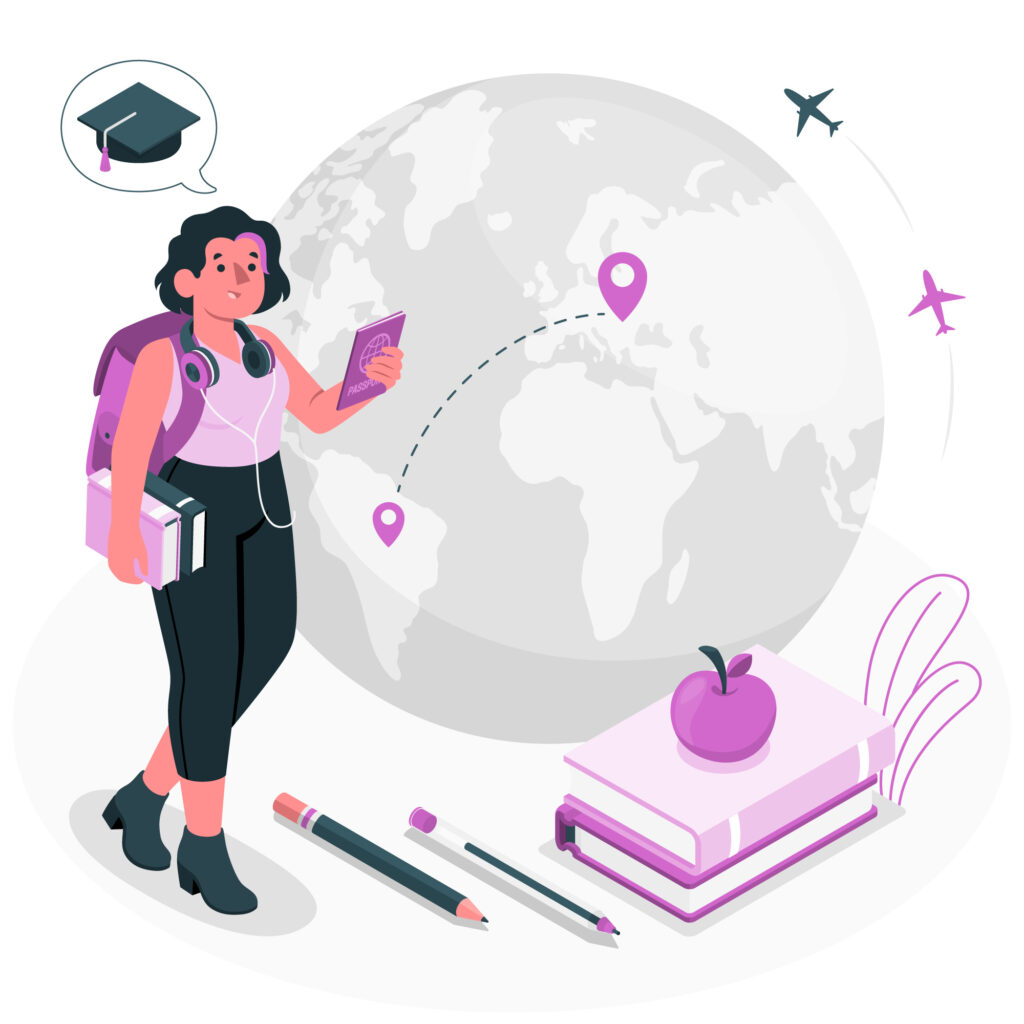
Educational tourism, also known as edu-tourism or educational travel, is a form of tourism whose primary purpose is gaining knowledge and engaging in cultural exchanges. It involves travelling to a different country or region to learn about various subjects such as history , languages, art, and environmental issues.
Education tourism isn’t limited to academic learning; it can encompass any activity or experience that enriches the traveller’s understanding of the world. The goal is to explore new places, foster personal growth, and broaden one’s perspective.
Several types of educational tourism cater to different interests and age groups. Some of the most common include:
- Language Immersion Programs: These are designed for those who want to learn a new language by visiting a country where the language is spoken. The immersion environment enables participants to practice their language skills and better understand the local culture.
- Cultural Exchange Programs: These programs foster understanding and appreciation of other cultures. Participants live with host families, attend local schools or workshops, and partake in community-based activities to learn about the customs and traditions of the host country.
- Study Abroad Programs: These are popular among college and university students, allowing them to complete a portion of their degree in a different country. It promotes cross-cultural understanding, enhances global awareness, and broadens academic perspectives.
- Eco-Tourism and Sustainable Tourism: Travelers visit natural habitats and engage in activities that support their preservation and conservation . It increases environmental awareness and promotes responsible travel practices.
Educational tourism presents countless opportunities for personal development, academic enrichment, and cultural exploration. As a global phenomenon, it encourages learning from different perspectives and fosters a deeper understanding of our diverse world.
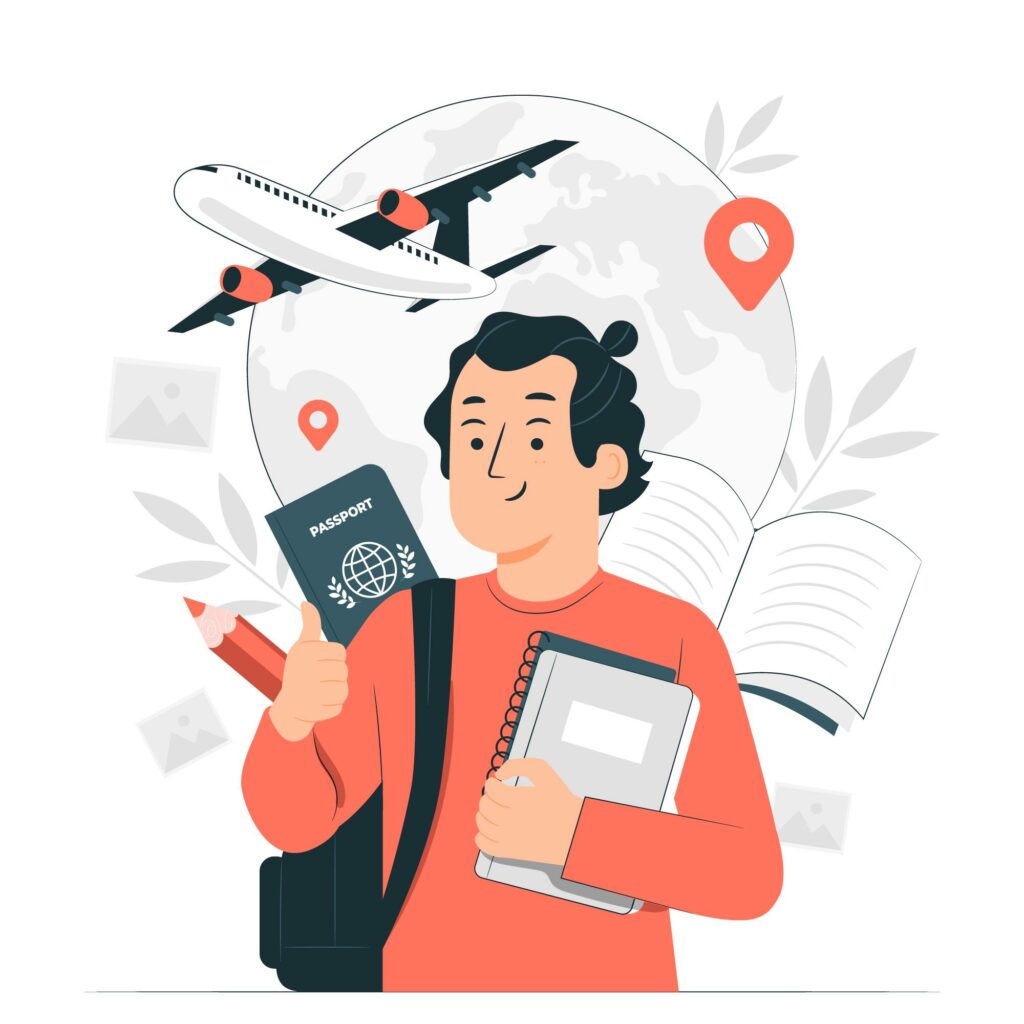
Personal Growth
Educational tourism provides numerous opportunities for personal growth. Travellers are exposed to new environments and experiences that can foster self-discovery, adaptability, and resilience. They can develop interpersonal skills through interactions with diverse groups of people, enabling them to communicate effectively in different cultural contexts. Furthermore, participating in educational trips can also enhance critical thinking and problem-solving abilities as individuals learn to navigate unfamiliar situations.
Professional Growth
Pursuing educational tourism can significantly contribute to professional growth. Acquiring new skills and knowledge, particularly in a global context, can make individuals more competitive in the job market, set them apart from their peers, and increase their chances of employment. Additionally, some educational tourism programs provide opportunities for networking, collaboration, and exposure to industry professionals, which can result in valuable connections and insights that can propel one’s career forward.
Cultural Knowledge
Engaging in educational tourism immerses individuals in the destination country’s local culture, history, and traditions. This exposure to diverse cultures enriches travellers’ understanding of the world and broadens their perspectives. By participating in culturally immersive activities, like workshops, visiting museums or engaging with local communities, individuals can gain a deeper appreciation for and understanding of various cultural practices. This increased cultural knowledge promotes tolerance, respect, and empathy towards other cultures.
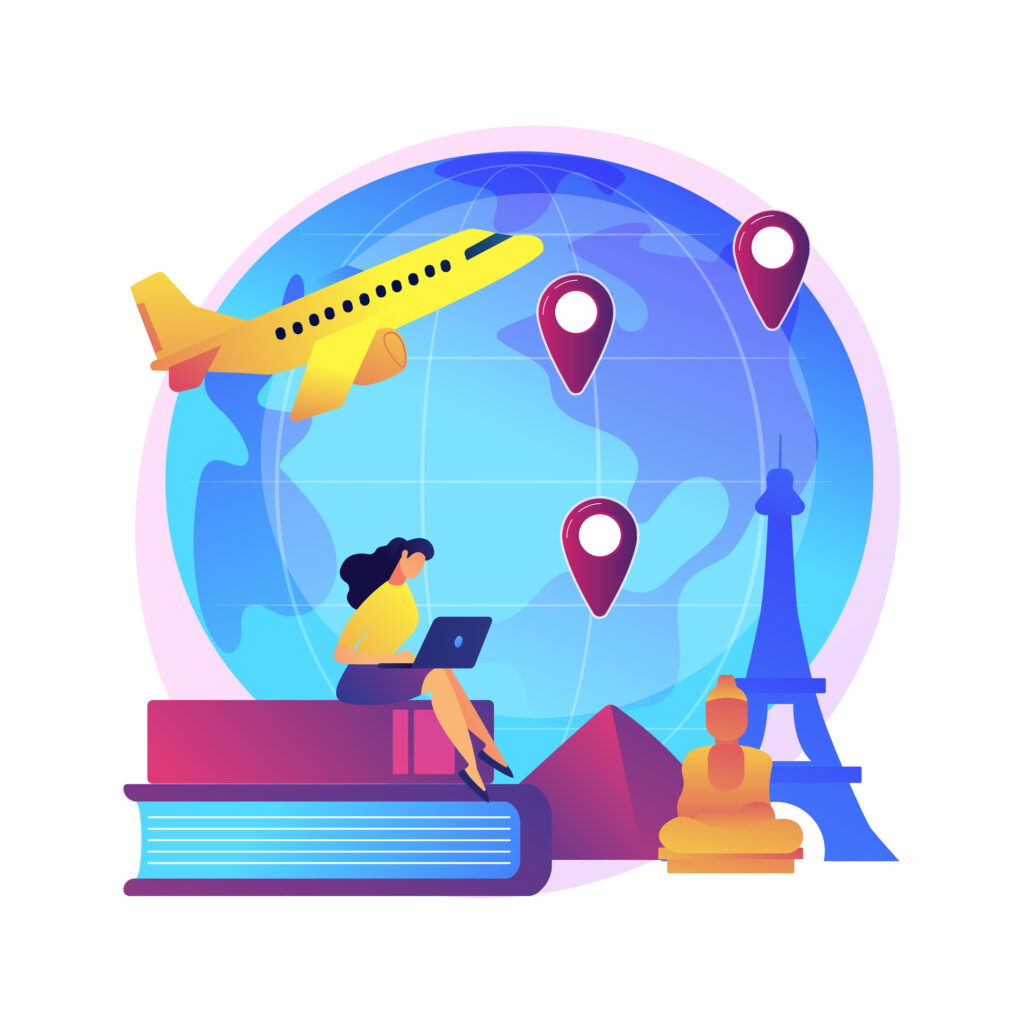
In Europe, France is a top destination for educational tourism, offering cultural experiences like art galleries and museums and language immersion programs. Italy is another popular choice, known for its history, architecture, and cuisine. Students can visit famous landmarks like the Colosseum or the Leaning Tower of Pisa while learning about the country’s rich heritage. Germany is an ideal destination for learning about its technological advancements and history, with attractions like the Berlin Wall and BMW Museum. Finally, the United Kingdom offers various educational activities, including famous landmarks such as Buckingham Palace and the British Museum.
Japan is a sought-after educational tourism destination in Asia, known for its technological innovations and deep-rooted traditions. Visitors can participate in tea ceremonies, learn about samurai culture, and explore high-tech cities like Tokyo. Thailand provides opportunities for learning about Southeast Asian history, visiting temples and ancient sites, and exploring its rich biodiversity. India is another popular choice, featuring architectural wonders like the Taj Mahal, rich cultural heritage, and diverse traditions.
North America
In the United States , educational tourism spans from historical landmarks, like the Washington Monument and Ellis Island, to scientific institutions, such as NASA’s Kennedy Space Center. The US offers numerous educational activities, including visiting national parks and learning about the country’s diverse demographics.
Australia is recognized for its unique flora and fauna, making it an ideal destination for biology and ecology students. The Great Barrier Reef, the Outback, and various wildlife sanctuaries can be visited for learning opportunities in Australia.
Please note that this list is not exhaustive, and plenty of more destinations are available for educational tourism across the globe.
The Canadian Tourism Commission (2001) notes two main components to the supply side of educational tourism: the primary tourist product and secondary or support elements.
A variety of organisations combine to form the primary educational tourism experience, including:
- Attractions and events which provide the venue for learning experiences (e.g. parks, historic sites, zoos, bird and wildlife sanctuaries and archaeological dig sites).
- Resource specialists who are responsible for delivering the learning component of these vacations (e.g. employees, curators, interpreters, lecturers, storytellers, researchers and academics).
- Affinity travel planners from organisations who help plan and develop learning programmes for travellers (e.g. special interest groups, conservation organisations, universities and language schools).
- Tour and receptive operators who package experiences for customers and organisations and provide destination expertise, local knowledge, escort services and marketing services.
However, secondary suppliers or support services are also required for educational travellers, including:
- Transportation such as cruise, bus and train transport as part of an independent trip or package, including travel to and from the departure point.
- Hospitality services , including catering, recreation, entertainment, social activities and accommodation options.
- Travel services , including travel agents, insurance companies, travel media and advertising.
- Destination marketing organisations who operate at a national, regional or local level to promote educational travel and tourism to potential tourists.
It is the combination of primary and secondary suppliers which will create the educational tourist experience consumed by travellers. The continued development of innovative partnerships and product development is critical to the future of the educational tourism industry.
Student Exchange Programs
Student exchange programs are a popular form of educational tourism, allowing students to experience other cultures and improve their language skills. These programs often involve partnerships between universities and schools in different countries. Global Volunteers and GVI Company are examples of organizations that facilitate student exchanges. Participants may stay with host families or in university dormitories, promoting cross-cultural understanding and lifelong connections.
Language Schools
Language schools are another popular option for educational tourism, providing immersive learning experiences. Students can attend classes to improve their language skills while enjoying exploring a new country. EF Tours and ACIS Educational Tours are notable companies that organize language school trips, catering to various age groups and proficiency levels. These tours can include cultural activities, excursions, and opportunities to practice conversation with native speakers.
Workshops and Seminars
Workshops and seminars provide focused learning experiences on specific subjects, usually conducted quickly. Travellers can attend workshops and seminars on topics such as art, cooking, photography, or writing, hosted by experts in the field. These educational tourism experiences often include accommodations, meals, and excursions related to the explored topic. Companies like Workshop Travels specialize in organizing these types of trips, offering unique educational opportunities alongside cultural experiences.
Educational Tours Companies
Educational tour companies often offer tailor-made itineraries for school trips and excursions, providing students with hands-on experiences in various subjects. Examples include exploring historical landmarks, visiting museums, and participating in local customs and traditions. EF Tours, ACIS Educational Tours, and School Excursions are well-known companies that arrange these trips for schools and universities. Packages range from short one-day outings to multi-week adventures catering to diverse educational needs and interests.
In summary, educational tourism programs and companies cater to various learning experiences and fields of interest, offering unique travel opportunities for students, educators, and travellers.

Broadening Cultural Experience
Educational tourism immerses travellers in diverse cultures, art, history, and architecture. This exposure leads to a deeper understanding and appreciation for different ways of life. Tourists broaden their perspectives by visiting historical landmarks, engaging with local communities, and participating in cultural activities. Exploring unique landscapes and learning foreign languages also contribute to culturally enriching experiences.
Enhancing Education and Teaching
Through educational tourism, individuals can enhance their knowledge and skills by learning from experts in various fields. Incorporating hands-on experiences in subjects like history, art, and architecture provides a more engaging and memorable educational journey. As a result, such incidents often stimulate a lifelong passion for learning and a greater appreciation for diverse subjects. Furthermore, educators can bring back valuable insights, tools, and teaching methods to enrich their classrooms and contribute to improved teaching practices.
Boost to Employment and Business
Educational tourism creates a demand for skilled professionals in the tourism industry . This demand increases employment opportunities for local guides, translators, and educators. Moreover, the influx of travellers contributes to the growth of local businesses such as hotels , restaurants, and entertainment venues. Education tourism strengthens the foundation for sustainable growth within the global community by fostering cultural exchange and economic development.
Impact on Local Cultures
Educational tourism offers the opportunity to learn about new cultures and societies but can also significantly impact these communities. Over-tourism can lead to commodifying cultural experiences, with locals feeling pressured to adjust their traditions and customs for tourist consumption. This can result in losing crucial cultural heritage, a decline in authenticity, and socio-cultural tensions between visitors and local populations.
Furthermore, tourists’ motivation to learn about new cultures may sometimes result in intrusive behaviour. The desire to explore and understand can lead to an invasion of privacy or violations of personal boundaries, creating resentment within the local community.
Environmental and Social Issues
Another challenge of educational tourism is the ecological footprint it leaves behind. As tourists travel to remote destinations, they often generate environmental issues such as pollution, littering, and depletion of natural resources. These actions can endanger the ecosystems on which local communities rely for their livelihoods.
Additionally, educational tourism can exacerbate social inequality. Wealthier tourists can consume resources, push up the cost of living, and drive up housing prices in popular destinations, making it increasingly difficult for locals to afford necessities.
To minimize the negative impacts, tourists and educational institutions must be conscious of their actions and strive for sustainable and responsible tourism practices.
Global Trends and Growth
Educational tourism is gaining rapid prominence in the global tourism industry, driven by the increased number of international students, researchers, and individuals exploring new places for learning. The year-on-year growth of educational tourism has been remarkable, indicating its significance and potential for the future of educational tourism . The compound annual growth rate (CAGR) of educational tourists globally is expected upward.
With more diverse modes of transportation available, travelling for educational purposes is becoming more accessible to individuals worldwide. As a result, global educational tourists are anticipated to grow exponentially over the coming years. Dark tourism has also garnered attention as an educational sub-sector among the various niche segments. It involves visiting sites associated with death, tragedy, or adverse historical events, encouraging tourists to learn about critical aspects of human history.
International Collaborations
In the age of globalization, international collaborations have become the cornerstone for promoting educational tourism. Universities and academic institutions worldwide have recognized the benefits of global exposure through partnership programs, research initiatives, and exchange opportunities for students and faculty. These collaborations foster cultural exchange, promoting understanding different perspectives and contributing to academic advancements.
International students, in particular, play a pivotal role in boosting educational tourism’s global reach. With increasing interest in studying abroad, greater acceptance of different cultures, and the opportunities offered through international collaborations, international student mobility is expected to rise. Consequently, educational tourism will continue to thrive and evolve, enriching people’s lives with the experiential knowledge they acquire through travel and tourism .

Educational tourism, also known as “edutourism” or “academic tourism,” involves travel experiences designed to provide participants with opportunities for learning, cultural enrichment, and personal growth. Here are some examples of educational tourism:
- Museum Tours: Travelers visit museums, art galleries, science centres, and historical sites to learn about art, history, science, and culture. Guided tours , interactive exhibits, and informative displays help visitors gain insights into various subjects.
- Cultural Exchange Programs: These programs facilitate interactions between travellers and local communities. Participants engage in homestays, language immersion, and cultural workshops to understand different cultures and traditions firsthand.
- Historical Site Visits: Travelers explore historical landmarks, ancient ruins, and heritage sites to learn about past civilizations, events, and architecture. These visits provide insights into the historical context of a region.
- Language Learning Trips: Participants travel to destinations where the target language is spoken. Language immersion programs offer classes, cultural activities, and opportunities to practice language skills in real-life settings.
- Culinary Tours: Travelers explore the local cuisine, visit markets, and participate in cooking classes to learn about food traditions, ingredients, and cooking techniques of a particular region.
- Eco-Tourism and Sustainability Tours: These tours focus on ecological conservation, sustainable practices, and environmental awareness. Participants learn about local ecosystems, wildlife, and efforts to protect the environment.
- Educational Workshops and Retreats: Travelers attend workshops, seminars, and retreats related to personal development, wellness, and skill enhancement. These events provide opportunities for learning new skills and self-improvement.
- Educational Cruises: Cruises often offer onboard lectures, workshops, and field excursions that provide travellers with educational experiences while visiting multiple destinations.
- Academic Conferences and Seminars: Professionals, researchers, and students attend conferences and seminars to present and discuss research findings, share insights, and engage in academic discussions.
- Volunteer Tourism (Voluntourism): Travelers engage in volunteer activities, such as teaching, community development, or conservation efforts, while experiencing the local culture and gaining insights into societal challenges.
- Wildlife and Nature Tours: Participants explore natural habitats, observe wildlife, and learn about biodiversity, conservation, and ecological systems through guided tours and excursions.
- Adventure-Based Learning: Adventure activities such as outdoor expeditions, trekking, and team-building exercises provide opportunities for personal growth, leadership development, and experiential learning.
- Educational Farm Stays: Travelers stay on farms to learn about agriculture, animal husbandry, and sustainable farming practices. They may participate in farm activities and gain an appreciation for rural life.
- University or School Exchange Programs: Students participate in exchange programs to study abroad, gaining exposure to different educational systems, cultures, and perspectives.
- Archaeological Expeditions: Participants join archaeological digs to learn about ancient civilizations and the process of excavation and preservation.
Educational tourism offers participants a chance to learn beyond traditional classroom settings, fostering cultural understanding, personal development, and a broader worldview. The activities and experiences can vary widely, allowing travellers to choose options that align with their interests and learning goals.

What is Educational Tourism? (8 Examples)
Educational tourism is on the rise due to the huge proven benefits to students who take part in it. This article will explain the 8 key types of education in tourism.

Educational tourism isn’t a new concept. In fact, educational tours were popular amongst young British aristocrats in the 17th to 19th centuries. The idea was to expose them to a wide range of experiences and increase their knowledge.
Today, educational tourism continues to enable students to study abroad, learn about foreign cultures, acquire new languages, and have invaluable life experiences. The benefits of such educational endeavours are endless.
What is educational tourism?
Educational tourism is any type of travel that broadens someone’s horizons. This could be a trip organized with education at the forefront, arranged by a university or a school. However, it includes any leisure travel that offers opportunities for learning.
8 types of education in tourism
1. student exchange programs.
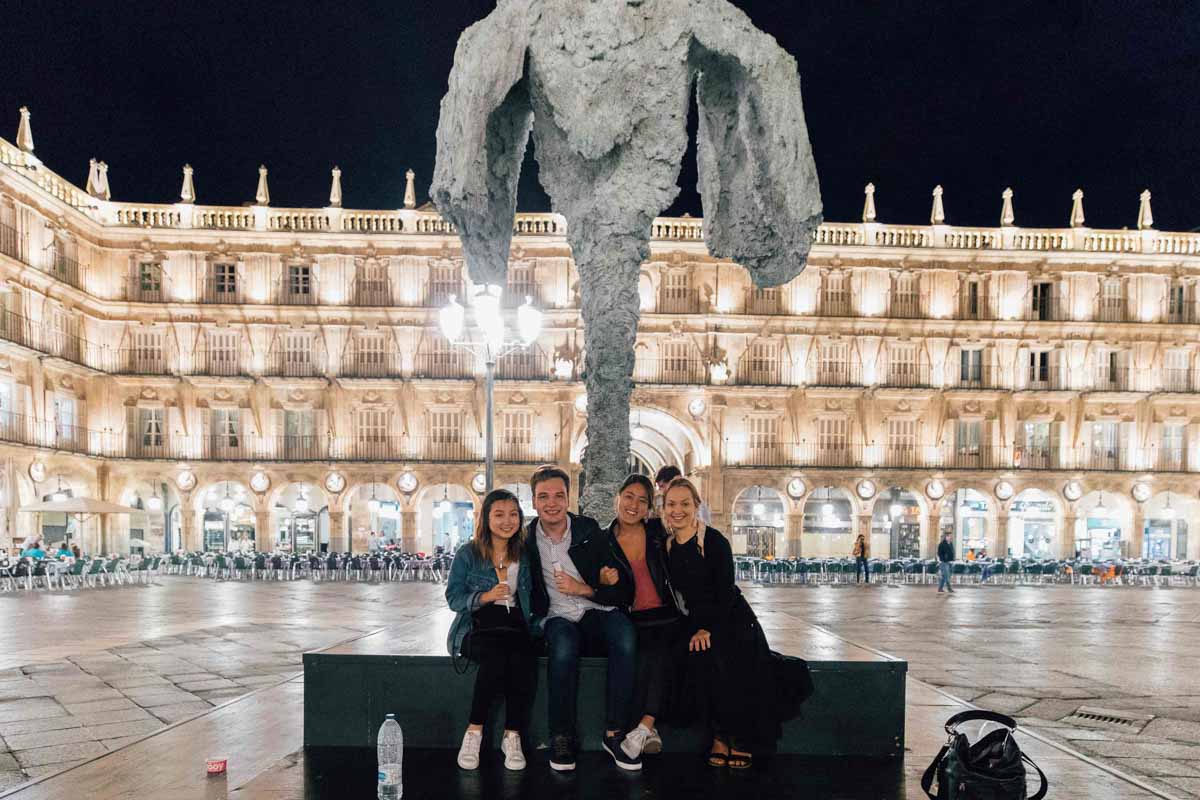
Student exchange programs enable students to work with some of the leading academics around the world. They can earn credits towards their degrees with systems like the European Credit Transfer System (ECTS). These programs also offer sports competitions, camps, and internships.
If you are struggling, Allessaywriter provides a reliable solution for students grappling with the demands of academic writing during their exchange programs.
Adjusting to a new culture and language on top of academic commitments can be a struggle. If students are in need of additional academic help, there are online services that can be requested by asking ‘ help me with my homework ‘. External professional help can make the transition to a student exchange program feel more manageable.
2. Language immersion programs

One of the best ways to learn a language is to learn from native language speakers. Language schools in various cities around the globe attract students. They can learn French in Paris and discover the true Paris by speaking with Parisians.
Learning a language lesson from a teacher and then interacting with locals to put it into practice increases understanding and retention.
READ NEXT : Taking a Spanish Course in Salamanca: What to Expect
3. Study abroad programs
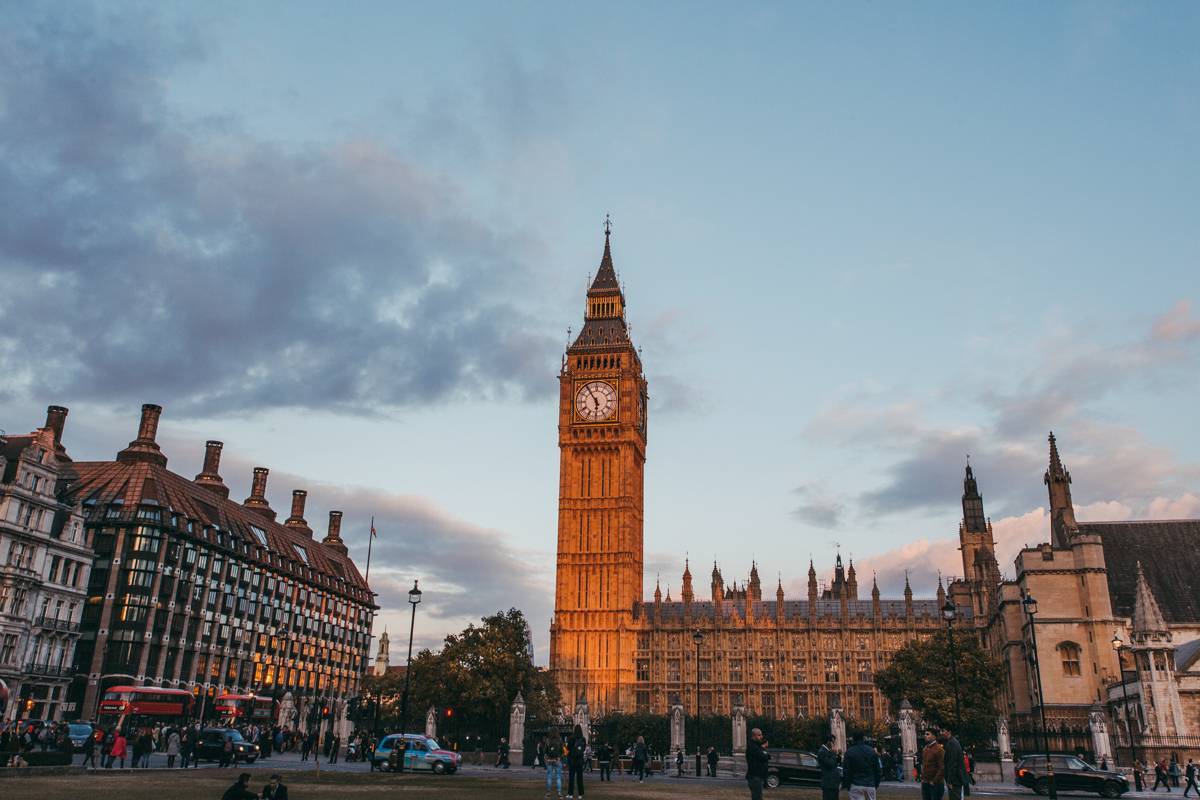
There are various study abroad programs that give students the chance to pursue academic courses in foreign countries. They usually provide a combination of learning in the classroom, cultural experiences, and field trips.
Many students choose to do a Master’s Degree or Ph.D. abroad. Whether students want to enroll in a foreign university or advance their business career in London, there are study abroad programs that will assist them.
4. Volunteer opportunities

There are companies that offer volunteer opportunities in foreign countries. They usually have a vast network of partners and professionals. Travelers can volunteer to work in many different settings from classrooms and hospitals to farm fields and child care centers.
Working in community service projects enables them to contribute to the betterment of society. They also gain a deeper understanding of global issues.
5. Cultural and historical tours
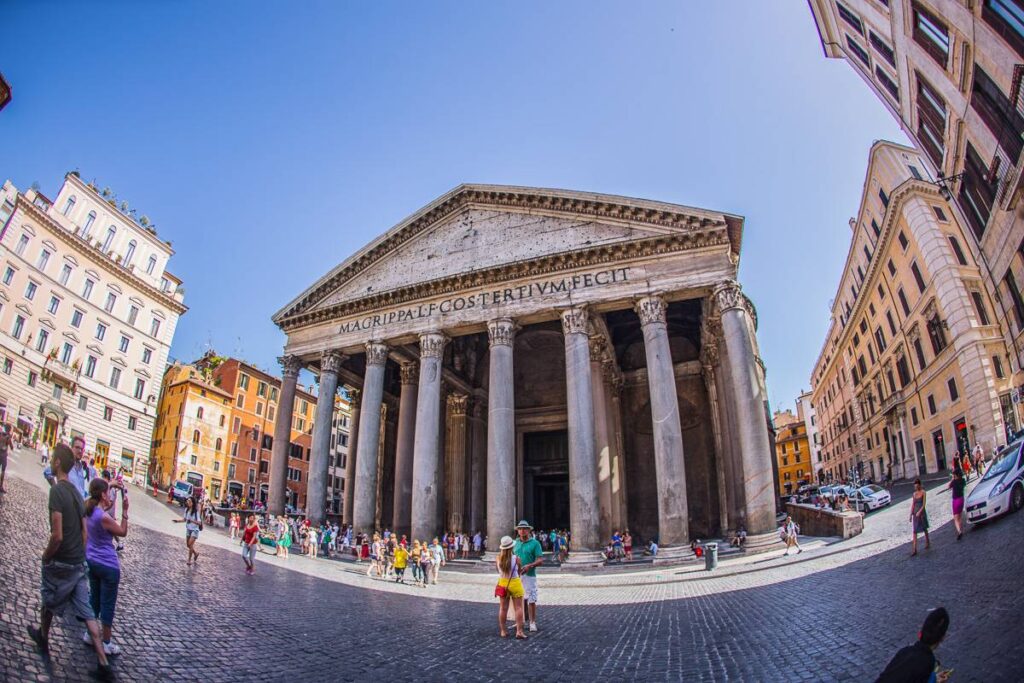
Travelers can take tours to learn more about the history and culture of a particular destination. They will participate in cultural activities and visit monuments, historical sites, and museums.
This helps them to understand the way of life and local traditions. One of the popular places to travel on such a tour is Egypt with its pyramids and other historical attractions.
6. Environmental tours

Environmental tours focus on learning about the natural environment. Participants will visit wildlife reserves and national parks.
They will learn more about sustainability and biodiversity through visiting conservation projects. They may participate in activities like spotting wildlife and hiking.
7. Workshops

Individuals and groups may travel to attend workshops to acquire knowledge. For example, they may attend workshops or conferences related to their field of interest.
This helps them to gain knowledge and practical exposure. Businesses may invest in a workshop package for employees to help them grow professionally.
8. Tourism Education

Students who want to go into the tourism sector need to get hands-on experience. Traveling to different countries provides them with unique insights and practical experience.
They may become passionate about creating more sustainable tourism. It will also help them to make contacts and establish a network that will assist them in their future career.
No matter what type of educational tourism you choose to take part in, you are bound to see a huge amount of benefits. Whether this is broadening your worldview, increasing cultural awareness or facilitating your intellectual growth- education in tourism is a life-changing industry.
Want more inspiration for educational tourism? Read these articles next:
- 10 Cheap Destinations for Student Holidays
- 10 Tips for Traveling as a Student
Hey, I'm Nicola!
I am a travel + food blogger on a mission to discover the best destinations & dishes in the world. Thanks for joining the adventure!

Our Dream South of France Wedding
This is what it looks like to have a 3-day wedding in the South of France! On the 23rd of August 2023, James and I finally got to have the wedding celebration of our dreams. We had sixty of our nearest and dearest flying from all over the world to join us for three...

Sun and Safety Essentials to Pack on a Trip Through Southeast Asia
Planning an overseas trip can be both exciting and overwhelming, which is why I have made a list of sun and safety essentials to pack on a trip through Southeast Asia. With so many details to consider, from flights to accommodations, it's easy to overlook the finer...

25 Best Places to Visit in Bali in 2024
Bali has something for everyone, from its breathtaking beaches and rice terraces to ancient temples and vibrant markets. Whether you want to unwind on the beach, dive into the rich culture, or go on an adventure, this tropical paradise has you covered and won't...

Thailand on a Budget: What You Need to Know
Thailand is a dream destination for budget travelers. It's beautiful, the locals are friendly, the culture is fascinating, and, best of all, it's incredibly affordable. In this guide, we'll explore how to visit Thailand on a budget, covering everything from flights...

- The Importance of Educational Travel

Study abroad, annual field trips, huge senior trips, weeklong marching band getaways. . . let’s face it, students are traveling a lot more today than they used to. Of course, you already know that we think that is great, but the point of this blog is to tell you why we think you should think this is great. First off, let us define educational travel. Educational travel is a successful combination of tours, site visits, and hands-on learning opportunities that meet clear and concise learning objectives. Educational travel allows students to further their learning experience by actually seeing and/or experiencing what they have learned about in the classroom, in real life.
There truly is no better way to learn something than to s ee or do it for yourself, and with educational travel, you get to do just that! It’s like guaranteeing your class will learn something new, and have fun while doing it. Travel in general, however, is an educational experience in itself. High school students who take weekend vacations on the beach or on a cruise probably don’t intend on learning anything while traveling, but undoubtedly they will, as traveling somewhere new already brings a person out of their comfort zone and into a new perspective, a new place and a new self-awareness in that new place. This just automatically happens when traveling, whether a person intends on it or not.
When you add in the intentional educational part of traveling, you get an abundantly useful and memorable experience you will never, and can never, replace with any other lesson.
So plain and simple, what are the benefits of educational travel? Well, there’s probably too many to list, but here’s a start:
- Experience new cultures, gain a new perspective.
- Get out of your comfort zone. Gain courage.
- Exhibit and/ or gain independence and leadership skills.
- Increase self-awareness in a new place.
- Increase intercultural knowledge, become more business savvy and understanding.
- Gain insight and appreciation.
- Get a new/better perspective on history.
- Experience a hands-on learning opportunity.
- Gain crucial language experience.

Image of smiling student holding books and looking at camera Stockfresh
We could go on, but we probably shouldn’t. There are so many benefits to take from educational travel, even travel alone, that it is hard not to want to plan your own educational trip today. Whether you are a student or you are a teacher , or maybe you are just a curious parent, we suggest planning your own highly memorable and informational travel journey today, you won’t regret it!
Adventure Student Travel’s Top Educational Tour Suggestions:
- Washington D.C - History and Politics
- Civil Rights in Alabama
- New York Museums
- New York Business
- Florida Space Coast
- Living History in Williamsburg
- Marching Band Performance

Written by Danielle
View all posts by: Danielle
Related Posts
Are you looking for an affordable, customized group trip?
*Privacy Policy

Need help logging in?
Not Registered Yet?
- Browse Tours
- Educational Travel 101
- Teacher Stories
- ACIS Makes Planning Easy
- Keeping You and Your Students Safe
- Get Rewarded
- Student Stories
- Travel Scholarships & Fundraising
- Keeping Your Children Safe
- Paying For Your Trip
- Download Catalog
Planning an Educational Tour 101
Ever see a photo of a school group tour abroad and wondered…how did they make that happen? It comes up more often than you might think! There are a series of steps between browsing itineraries and finding yourself in a new country with students, and ACIS is there for every part of the process. For curious minds, we have put together an all new guide on how to plan an educational tour . Whether you’re new to the concept of educational travel or looking for a fresh start, this detailed brochure will kickstart the process.
What Goes Into Planning an ACIS Educational Tour?
Connected, passionate staff.
Planning an educational tour is a true partnership. Every Group Leader works with a small group of ACIS staff to make decisions, and that same team is there to guide from initial itinerary interest all the way through the return home.
Customized Itinerary Selection
ACIS is not a one-size-fits-all tour company! We offer hundreds of ready-made itineraries that can be customized to fit your classroom needs. That could mean adding city stops and cultural connections, removing activities to make room for free time exploration, adjusting return flights and more. Not seeing exactly what you want in the pre-built educational tour itineraries ? We also offer the ability to craft your tour from scratch.
An Abundance of Recruitment and Planning Materials
In addition to staff support, you will also receive plenty of personalized materials to build your group.
Every Group receives their own TripSite account, a custom powerpoint, and ready-to-print flyers for distribution.
Rewards for Group Leaders
For us, it’s not enough to give students and teachers a transformative travel experience: We want to reward Group Leaders for their commitment to bringing groups abroad.
Through the World Travel Rewards program, Group Leaders earn points that can be used for trip upgrades, cash back, and future travel opportunities.
Global Conferences and Training Weekends
A special highlight of our World Traveler Rewards program, ACIS Global Conferences are held in destinations around the world, from Munich to Medellín, and designed to reward Group Leaders with the premier ACIS experience. Plus, any first time Group Leader who registers 5 travelers is automatically gifted a Training Weekend in Barcelona or Costa Rica.
Are you ready to start planning your educational tour?
Sarah Bichsel
Post a Comment Cancel reply
Your email address will not be published. Required fields are marked *
Save my name, email, and website in this browser for the next time I comment.
Related Posts
May 14, 2024 Guest Blogger
Growing Your ACIS Group? Throw a Registration Party
April 23, 2024 Sarah Bichsel
Beyond “Above and Beyond”: Behind the Scenes of ACIS Support
May 1, 2024 Sarah Bichsel
8 Helpful Tips for Traveling to Europe
June 3, 2024 Sarah Bichsel
8 Helpful Travel Tips for Italy
March 19, 2024 Sarah Bichsel
ACIS to the Rescue: How Our Duty Officer Network Takes Care of Travel Hiccups
May 23, 2024 Jaden O'Rourke-Nelson
4 Goddesses of Ancient Egyptian Mythology
March 25, 2024 Sarah Bichsel
How to Prepare for Your First Time Flying on a Plane
May 20, 2024 Sarah Bichsel
ACIS Culture of Care: Preparing for the What Ifs of Travel
March 13, 2024 Sarah Bichsel
10 Tips for Recruiting Your ACIS Group
February 23, 2024 Sarah Bichsel
New ACIS Content: AP Learning and Educational Travel
Subscribe now.
- Asia & India
- Europe & Türkiye
- Middle East
- Oceania & Easter Island
- The Americas
- Archived Trips
- Custom Trips
- Tour Scholars
- Guides & Blogs
- (415) 482-8400
- [email protected]
- Request Info
What is Educational Tourism?
Every traveler sets off on their journey with their own unique motivations.
Some travel in search of adventure, while others travel for business. Many are inspired by food, and many more by picture-perfect natural landscapes and cultural attractions.
Educational tourism is a travel style defined by a desire to know more about other cultures – their history, languages, architecture, cuisine, and beyond.
At Far Horizons, we craft adventure-filled trips to extraordinary destinations led by Leading Academics . This means guests enjoy all the excitement and luxury one could want from a vacation, along with a focus on developing historical and cultural knowledge.
Below, we’ll discuss the general features of educational tourism and how travelers can benefit from an educational tourism mindset, especially when exploring the world’s greatest cultural treasures.
And while you’re here, please check our Worldwide Historical Tours . If you have any questions about our tours, please don’t hesitate to get in touch .
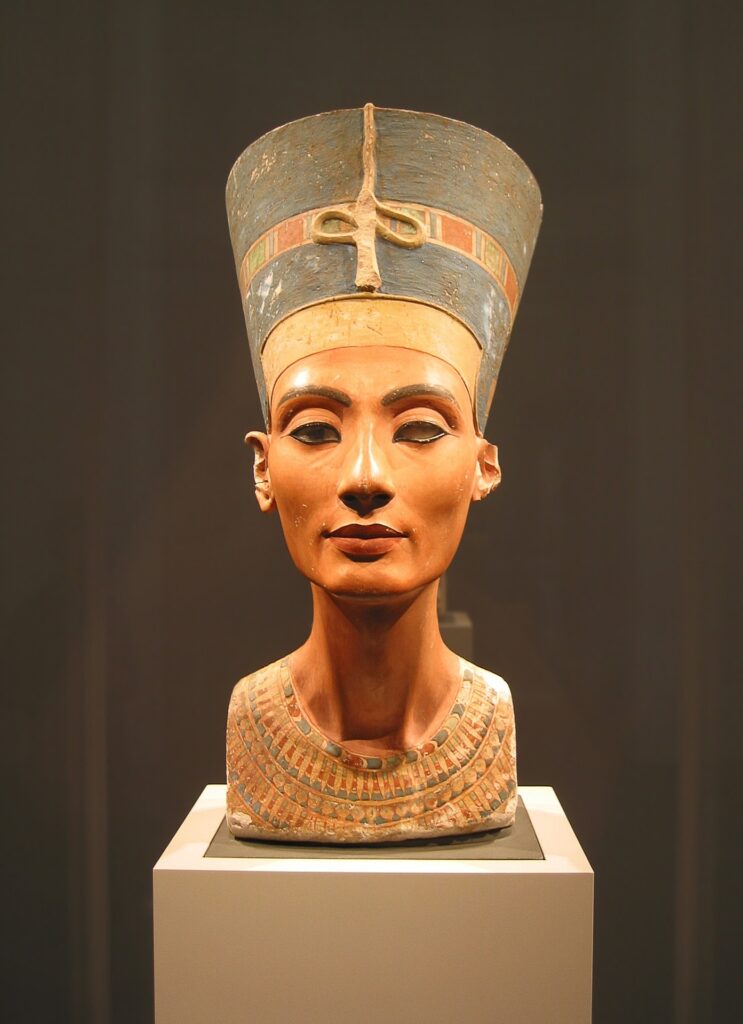
Defining Educational Tourism
In its simplest form, educational tourism is travel that broadens our horizons. It’s about venturing to new places with curiosity and openness that will enable learning and personal growth.
You’re on vacation, after all! Educational tourism is enriching, but it is never dry. Studying that is undertaken in the quiet of a library or behind a computer screen has its benefits, but educational tourism is about learning while also savoring the vibrancy of the world around you.
Educational tourism is often divided into two groups: travel organized with education as its driving motivation, such as school trips and university exchange programs, and travel mainly for pleasure but also offering the traveler opportunities for development.
At Far Horizons, our Educational and Archaeological Tours rest somewhere in the middle of educational tourism’s main varieties.
All our tours are guided by Ph.D. scholars – leading experts in their chosen fields. However, our small group tours are also crafted with entertainment and enjoyment in mind.
We want you to arrive home as both a happy and enriched traveler.
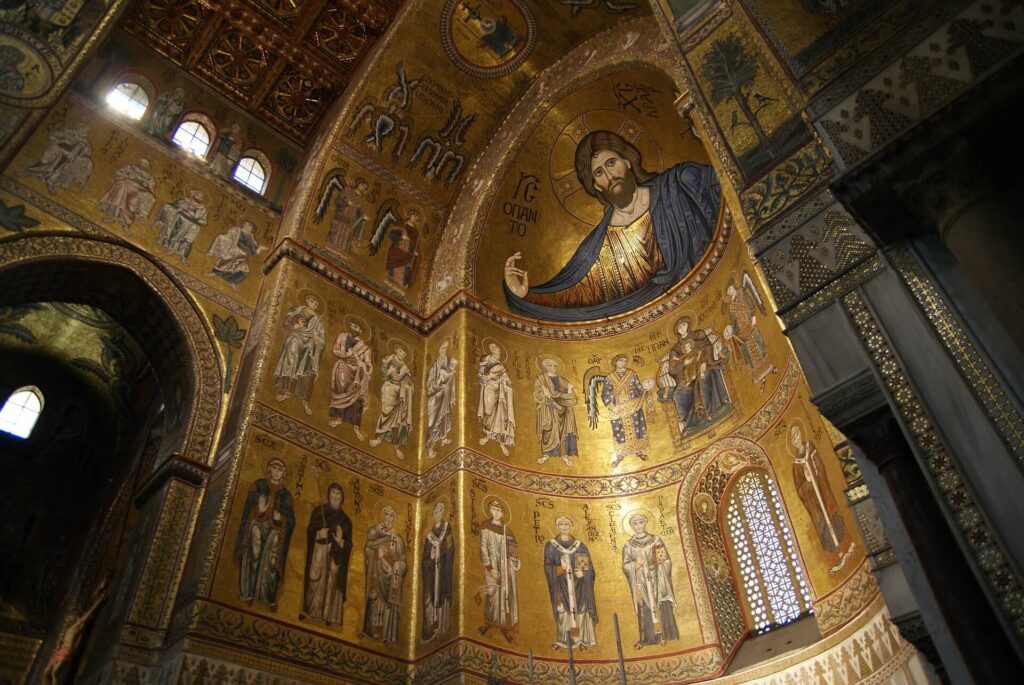
Self-Development Through Travel
Educational tourism is a mindset. Travel to a new place with an open mind and unbridled curiosity, and you’re guaranteed to learn plenty about other cultures and even about yourself.
It’s become something of a cliché, but travel is one of the surefire ways to discover what your true passions are in life.
At Far Horizons , our guests tend to join us due to having an intense love for a particular culture or period of history. By joining our experts on a tour, guests can explore their dream destinations while having a specialist close at hand to illuminate the historical sites.
If ancient Egypt has long fascinated you, our Majesty of Egypt Tour is the perfect way to see Egypt’s great tombs and temples in the company of an expert guide and a small group of like-minded individuals.
Have the castles and stately homes of England always seemed enchanting to you? Joining our England’s Castles, Battlements, and Stately Homes tour is guaranteed to be a rewarding experience.
When we began Far Horizons, our focus was mainly on the archaeological sites of the Maya World. However, as more and more travelers joined us and our tour program grew, we began designing educational tours across the globe.
The possibilities of educational tourism are endless. Every journey you make can help expand your knowledge of the world and the story of human history.
And, when bearing the educational potential of travel in mind, our journeys can become the ultimate aid to self-development, providing genuinely transferable skills helpful in the workplace or academic environment.
Travel helps us think big, empathize with others, inspire creativity, and improves our self-confidence.
Within our field of archaeological tourism specifically, there’s no better way to develop confidence in your area of interest than by visiting the sites themselves.
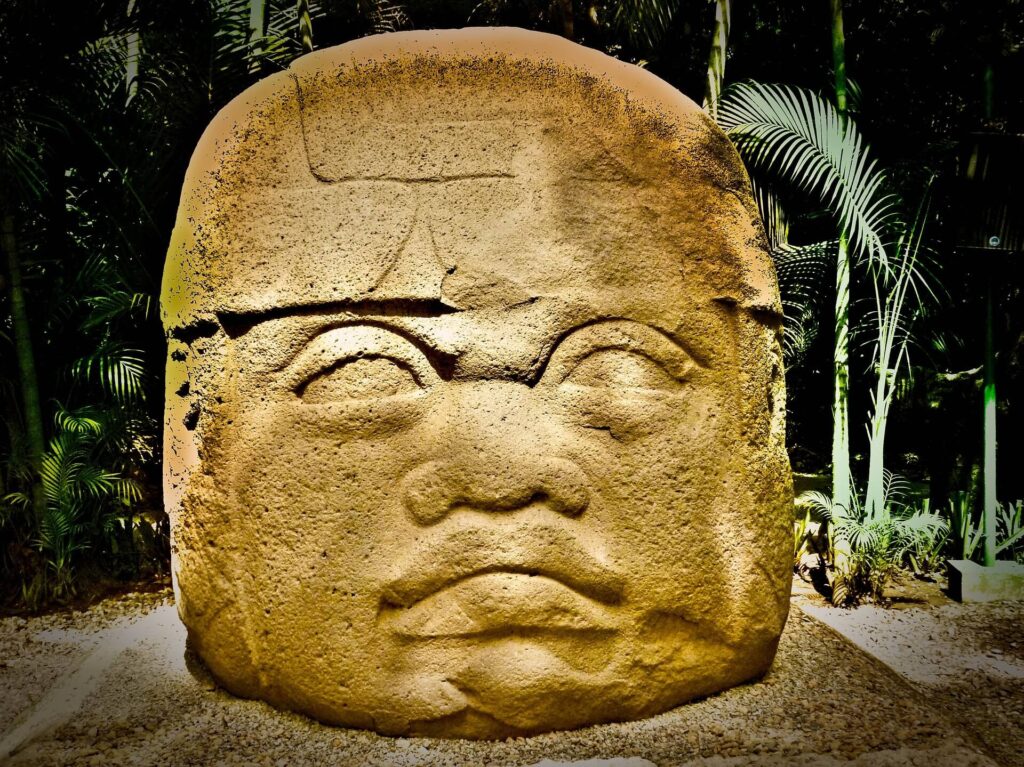
Uncovering World History with Far Horizons
Far Horizons specializes in upscale educational tours worldwide, each led by a renowned scholar who unveils the secrets of the sites we explore. We believe that to truly understand an area of the world, it is important not to be just an observer, a traveler passing through, but we must endeavor to be as much of a participant within that culture as possible.
This is the central purpose of educational tourism. It is about journeying with the curiosity and openness required to truly come away with a meaningful understanding of other cultures.
On our tours, archaeological and historical knowledge boundaries are being tested and pushed ever outward. The scholars who lead our groups are working at the forefront of their chosen fields, and we keep our groups to a maximum size of 14 people to ensure that every guest has the freedom to ask questions.
These smaller group sizes also enable us to enjoy dining experiences in celebrated restaurants, to stay in small accommodations that capture the atmosphere of the country we’re in, and to access historical attractions that would not be possible with a larger group.
Please explore our full range of Educational Tours . If you are still looking for the itinerary right for you, you may want to consider our Custom Tours option.
If you have any questions, we’d be pleased to hear from you – get in touch .
Recent Blogs

- Archived Tours
- Culture & History
- Did You Know?
- Egypt & Africa
- Far Horizons
- Middle East & Arabia
- Turkey & Europe


Educational tourism- the best way to travel?
Disclaimer: Some posts on Tourism Teacher may contain affiliate links. If you appreciate this content, you can show your support by making a purchase through these links or by buying me a coffee . Thank you for your support!
Educational tourism is one of the best types of tourism ! Whether you are going on a school trip, backpacking around South East Asia or going on a round the world cruise, there are always lots of things to learn while travelling. Whilst people used to be content with laying on a beach and reading a book, consumer preferences are changing- people want to experience something different- they want adventure, excitement and education!
What many people don’t realise, is that educational tourism is actually all around us. Whether in a formal or informal context, most types of travel involve an element of education. But how does this work and what does it mean for the travel industry? In this article I will explain exactly what is meant by the term educational tourism, how this occurs and where it is most commonly found. I will also discuss the many advantages of educational tourism, to both the tourist and the tourism industry .
What is educational tourism?
Educational tourism definition, why we need to understand the concept of educational tourism, education first, tourist first, consequential education in travel, how does educational tourism work the theory behind the practice, benefits of educational tourism, educational tourism.
As LaTorre noted in 2011, The world is one’s school. When most people hear the term ‘educational tourism’, they think of school trips to visits to sites such as Auchswitz or Oradour-Sur-Glane . Or they think of educational holidays for adults such as learning to dive in Dahab . or learning to cook in Thailand . However, educational tourism is soooo much more than this. In fact, it is everywhere we look!

Since the origins of tourism and the grand tour (Ritchie et al , 2003) the educational benefit of travel has long been recognised. There are now an abundance of ‘study abroad’ options available to those inclined and the informal educational attributes of travel, for example whilst undertaking volunteer tourism placements, gap years or backpacking trips, are undisputed.
Yet despite such common reference to the educational benefits of travel, educational tourism appears to be under-researched as an academic subject. Literature surrounding educational tourism appears to be sporadically scattered across many fields of study and ironically, this concept that is so commonly identified as a benefit or motivation for touristic activities has been subject to little academic attention to date. This has seen rise to many unanswered questions such as; what are travellers learning; who is learning; where, when and how are they learning? (Falk et al , 2012).
Read the book: Educational tourism by Elizabeth App
Due to the lack of literature addressing the concept of educational tourism there are few attempts at drawing definitional boundaries explaining what constitutes an educational tourist. Ritchie et al (2003) draw upon definitions of tourism and the parameters of educational tourism and conclude that an educational tourist is;
‘A person who is away from their home town or country overnight, where education and learning are either the main reason for their trip or where education and learning are secondary reasons but are perceived as an important way of using leisure time’ (p18)
Ritchie highlights an important point here. He notes that education may be the main reason for tourism. BUT it may also be a secondary motive for tourism. I would like to take this one step further and propose also that education may not be perceived as being an important part of a trip, but in actual fact, it is. I call this consequential education in tourism.

Understanding the concept of educational tourism is important to tourism industry stakeholders . Tourists want to learn. They may not desire a formal learning environment whilst on holiday, but most people are inquisitive about new places and new people. People enjoy learning how elephants are cared for at the elephant sanctuaries in Thailand and they want to know more about how spices are harvested at the spice plantation in Goa , for example.
Falk et al (2012) argue that tourism managers and researchers need to better understand the nature of learning in tourism and leisure contexts. Educational tourism is big business, bigger than most people realise! And the potential for tourism businesses is huge…. understanding the concept of educational tourism can help to inform business plans, marketing, consumer satisfaction and lots more!
The types of educational tourism
Educational tourism comes in many different shapes and sizes. In fact, educational tourism is actually a macro niche tourism , which is subsequently found within many different types of tourism. Types of tourism that commonly facilitate educational tourism include:
- Cultural tourism
- Dark tourism
- Business tourism
- Culinary tourism
- Volunteer tourism
- Special interest tourism
Educational is found is tourism in many different regards. This can be in a formal or informal context (or somewhere in between). Shwayat has attempted to demonstrate this through the diagram below. However, I believe that this is too fragmented to be representative. Yes, sometimes educational tourism is evident to all, but other times it is subtle. So subtle in fact, that even the tourist may not realise they are an ‘educational tourist’.

Similarly, Pogodina (2009) has attempted to visually depict the educational tourism spectrum in the chart below. Here you can clearly see the role of the various stakeholders of educational tourism.

According to Ritchie et al (2013), educational tourism can be divided into two segments. The first is university, college and school tourism, in which the tourist experience is secondary to formal learning and can be described as ‘education first’. The second is edu-tourism, defined as general travel for education and known as ‘tourist first’ (Ritchie et al , 2003). In addition to this, I propose that there should be a third classification: consequential educational travel.
I will explain what each of these mean below.
Education first tourism is the most known form of educational tourism. However, in reality it is actually less common than the other two types of educational tourism, tourist first and consequential educational travel. Education first is the most formal educational tourism setting and can take a number of forms. Examples include:
- Studying abroad at college or university
- Attending a boarding school abroad
- Doing a qualification overseas, e.g. TEFL
- Language exchange programmes
- Taking a course abroad e.g. learning a language/diving/cooking/art etc
- Service learning
- Educational school trips
- Girl guide/Scouts etc trips
- World schooling
- Cultural immersion e.g. working as an au pair
Many people choose to study abroad because they are in search of a new experience or because this provides opportunities to them that are not available at home. Freestone and Geldens (2008) state that as a result of the student having a pre-determined date of returning home, study abroad can be considered a tourist experience. Students are also likely to undertake touristic activities during their free time.
Study abroad has been found to significantly aid learning and is now common practice within schools, colleges and universities (Paige et al , 2009). Abrams (1979) stated some years ago that study abroad is better defined as learning through experience abroad . This is due to the difficulty in determining whether the benefits and outcomes of study abroad are the results of travel, interaction with other cultures, classroom study or a combination. This supports my suggestion that it is difficult to develop linear, segmented models of educational tourism, like the ones included in this article above.
The ‘tourist-first’ experience is when learning is acquired through tourist experiences outside of the classroom. This can take many different forms. For example, it could be learning about the history of the long neck tribe in Thailand during an excursion or visiting the Egyptian museum in Cairo whilst travelling in Egypt .
Some have identified educational tourism as being a form of lifelong learning (e.g. Broomhall et al, 2010; Falk et al , 2012). TEFL teaching (the subject of my PhD- learn more in the video below) is akin with lifelong learning in that the experience consists of formal and informal learning, whether this be in a classroom environment or ‘on the job’ learning, self-motivated learning as they are likely to have opted to undertake their TEFL teaching placement and self-funded learning as many are likely to have funded the trip and placement through their own means. Increasing numbers of people in Western society appear to have a growing appetite for lifelong learning (Falk and Dierking, 2002), and this can lead to assumptions that the likes of TEFL tourism will increase in the future.
An increasing body of research now shows that most learning takes place outside of the formalities of the education system (e.g. Falk and Dierking, 2010; Falk, Storksdieck and Dierking, 2007). In fact, there has been an exponential increase over the past two decades in the amount of learning that derives from self-directed experiences on the Internet or as part of leisure activities (Estabrook et al , 2007).
Pearce and Foster (2007) describe travel as being its own kind of educational institution, with the experiences and knowledge gained representing a kind of parallel to formal education in school or university. In fact, travel offers one of the few opportunities outside of formal education where non-vocational learning about other times, places and people takes place (Werry, 2008). An example of such learning is demonstrated through gap year travel, with many people returning home claiming to have developed intellectually as a result of their experiences, with personal growth and increased life skills being prominent areas of development (Coetzee and Bester, 2009). Others have reported learning of ‘generic skills’ whilst backpacking, such as problem solving and interpersonal skills as well as enhancing their general geographical and cultural awareness (Pearce and Foster, 2007).
Studies on volunteer tourism have highlighted its educational benefits and the ability to foster self-reflection and developments in personality traits and behaviours (e.g. Alexander, 2012; Benson and Wearing, 2012; Broad and Jenkins, 2008; Gray and Campbell, 2009; Sin, 2009; Soderman and Snead, 2008; Wickens, 2011). It has also been known for those involved with international travel to develop skills such as problem solving, time management and communication (Scarini and Pearce, 2012). Although the ‘curriculum’ of such informal learning may not be well organised, there is plenty of information to process and travellers are likely to acquire new skills and perspectives as a result (Pearce and Foster, 2007).
Another emerging type of education that is acquired through travel is the concept of world schooling. World schooling is essentially a means of providing and finding education from the real world. It provides families with the opportunities to travel long-term and to allow their children to learn through their experiences. World schooling removes teachers, classrooms, schools and pre-defined curriculums and allows children to learn through environments, cultures, climates, histories and societies that they naturally encounter on their travels. You can learn more about how world schooling works in practice on the World Travel Family blog .

To further emphasise the value of consequential education through travel, Pearce and Foster (2007, p1286) draw upon a quote from a graduate recruitment advertisement for the Ford Motor Company ascertaining that;
‘Degrees get students a job but the skills determine success’
This highlights that it is the combination of learning derived from formal institutions and qualifications and personal experience that is likely to help the individual be most successful in their chosen career path.
In order to demonstrate the relationship between travel and learning it is necessary to draw upon some of the fundamental theories used in learning and education analysis. Stone and Petrick (2013) pay reference to existential learning, stating that it can be used as a model for explaining how people learn by travelling.
Existential learning is in essence a form of education that takes place as a result of learners uncovering knowledge by themselves, usually as a result of personal experiences and can be defined as ‘meaningful discovery’ (Boydell, 1976, p19).
Kolb’s (1984) model provides a widely used framework for the understanding of existential learning and consequently, evaluating travel learning (Stone and Petrick, 2013). Kolb’s (1984) model essentially outlines the way in which a person will have a concrete experience, reflect on their experience, conceptualise or conclude what has happened and then experiment or try out what they have learnt before having another new concrete experience, and so the cycle continues. This framework is useful not only in understanding existential learning as a result of travel in a formal education context, but can potentially aid in the comprehension of learning of the different areas of the travel industry.

Despite Kolb’s (1984) model having not yet been thoroughly analysed as a way of travel learning (Stone and Petrick, 2013), it does have potential to be utilised in future studies involving travel as a means to learning. To date there have been attempts at linking travel with existential learning (e.g. Novelli and Burns, 2010; Woolley et al , 2011), however these have focussed on travel as part of an educational course, as opposed to freely chosen travel per se. This appears to be an area that is largely under researched to date.
Building on the pedagogy of existential learning and the reflective aspect in particular, Coghlan and Gooch (2011) propose that volunteer tourism organisations should utilise Mezirow’s (1991) theory on transformative learning to inform their operational plans. Mezirow’s (1991) theory describes a shift in one’s assumptions and world beliefs through a series of ten steps and highlights that the individual experiences a deep, structural shift in the basic premises of thought, feelings and actions (O’Sullivan, 2002).

There are many benefits of educational tourism that have been recorded in the academic literature. These include:
- Change in perspective or worldview/ greater awareness of ‘self’ (Dwyer, 2004)
- Increased independence and self-confidence/positive personality changes (Bachner and Zeutschel, 2009)
- Intercultural development/ have cultural experience (Ingraham and Peterson, 2004; Rexeison et al , 2008)
- Global engagement/ enhanced citizenship (Paige et al , 2009)
- Enhanced cultural awareness/dispelling of stereotypes (Freestone and Geldens, 2008)
- Intellectual and cognitive growth/ learning (Chieffo, 2007; Ingraham and Peterson, 2004; Novelli and Burns, 2010; Miller-Perrin and Thompson, 2010; Sutton and Rubin, 2004)
- Opportunity to achieve training and/or qualifications/ develop skills to aid career development
Educational tourism is an important type of tourism that I expect will continue to grow into the future. If you enjoyed reading this article, then I recommend you also take a look at:
- Cultural tourism explained: What, why and where
- MICE tourism: A simple explanation
- 10 jobs in travel and tourism that will be BIG in 2021 and beyond…
- Volunteer tourism: Everything you need to know
- The history of Thomas Cook | Understanding tourism
Liked this article? Click to share!

Educational Tourism
Educational tourism is an increasingly popular new trend in the global tourism industry. The concept of a wide range of educational tourism, it has been changing the concept of tourism itself. In other words, the main purpose of educational travel is to obtain knowledge and experience on certain topics, rather than travel itself.
Educational tourism is about learning new things, acquiring new knowledge about culture or history of other destinations. Its main focus is on studying new things, learning about other cultures, study tours, or to apply the learned skills. This is one of the most famous type of tourism activity for past few years, for example people travel to learn foreign languages. Due to the growing popularity of teaching and learning of new knowledge, Educational tourism is growing at a faster speed. Educational tourism has become an alternative of large scale mass tourism.
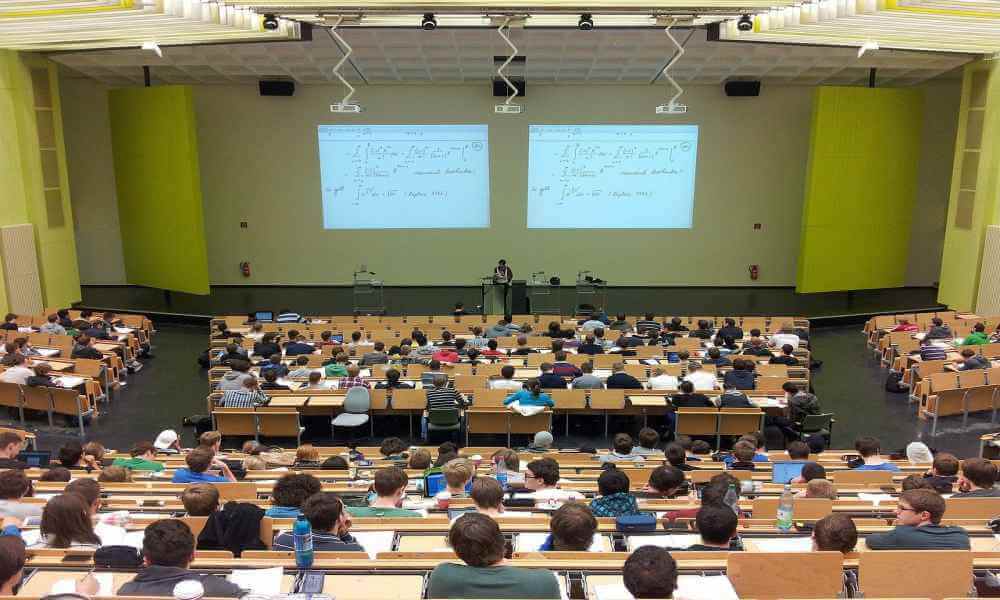
With the growth of tourism it has led to the emergence of segments within the tourism industry, which includes educational tourism as well. Educational tourism is not a homogenous group; it can vary from person to person or their interest. The number of international students has been steadily increasing over the last 30 years and China, India, and the Republic of Korea are the top three global student providers. The most popular destinations for educational tourism are United States, United Kingdom, Germany,
France, Australia, and Japan. These six countries host around 62% of the world’s total international student population.
In recent past the general increase in the educational level of society has had a profound impact on the tourism market. Educational tourism can take a variety of directions and serve a diversity of visitor interests, “such as satisfying curiosity about other people and their language and culture; stimulating interest in art, music, architecture or folklore; inspiring concerns for natural environments, landscapes, flora and fauna; or, deepening the fascination of cultural heritage and historic places. Educational tourism goes beyond a curiosity, interest or fascination for a particular topic but includes an element of organized learning (Kalinowski & Weiler 1992).
History of Educational tourism
Educational tourism has its roots in the ancient world. Yet, depending on the socioeconomic, political, cultural, and historical circumstances, at different historical stages of its development, it had its own peculiarities.
Educational tourism is not a new concept; it has existence since the 17th, 18th, and much of the 19th centuries. The ‘Grand Tour’ was seen as the beginning of educational tourism, which was undertaken initially by aristocratic British youth as part of their education during 17 th to 19 th century. Many of these were scholars from England, Germans and other countries, travelling on a grand tour of the European Continent.
Educational Tourism from Indian context:
India was an important centre for education in South-Asian countries since the ancient period. Scholars all over the world travelled to India for education. India was a famous destination for advanced learning process and knowledge sharing. Taxila University, Nalanda University, Vikramshila University, Odantapuri, Somapura, Sharada Peeth, Valabhi, and Ratnagiri were among the famous learning centres. The most famous and prestigious centres of learning among all these universities were Nalanda University and Taxila University. The three great personalities of India, Chanakya, Chandragupta and
Charak belong to Taxila University. ‘Arthashastra’ is believed to be written here by Chanakya. Arthashastra is the famous ancient book on economics and polity and it is still famous among the scholars.
Educational tour:
Most of the schools and colleges have educational tour as a part of the academic experience. Educational tours help the students with firsthand experience of various subjects. Example: Educational tours organised by the schools to the zoos and parks to acquaint the students with flora and fauna. This provides the students with an opportunity to see flora and fauna face to face which is quite exciting as compared to see the pictures of these in a book.
Similarly, in order to understand astronomy, a visit to a planetarium is quite beneficial. History students can be taken to places of historic importance or museums with ancient artefacts. Visits to old forts and palaces or the ruins of the ancient kingdoms can make history come alive before us.
Tourism and Education
Tourism and travel activities enhance knowledge because with travelling we come to know about new people, languages, life styles, landscapes, cultures, customs and traditions. This increases our knowledge about the other destinations. Travelling plays an important role in our education and it is essential part of education system. Education without travelling is not complete. Earlier travelling was not easy without facilities but now with the new modes of transportation and scientific improvements it has become quick, easy, cheap, interesting and pleasant. With bthe new modes of transportation like huge ships, fast and comfortable railways, electric vehicals, airplanes the journey has became more interesting and comfortable. Hence travelling has became an important part of education system and it is helpful in in enhancement of knowledge, growing innovative ideas and improving thought process. Travelling provide full knowledge while reading books give half or partial know;edge about things.

Classification of Educational Tourism
Although there is no clearly defined classification of education tourism, we can identify some major types:
- Youth Travelling – It involves school excursions, youth exchanges, and the design and creation for children and adolescents, such as visits to historical, cultural and educational sites, the purpose of the camp of the learning environment, the other tourism projects may also involve access to certain destinations abroad.
2. Tourism Education – Higher liquidity tourism or study can be divided into two types: full-time study program or participate in international exchange program.
3. International research programs- Around the world more and more students decide to complete their degrees in different countries.
4. Student Exchange Program – Due to a variety of higher education reform and the introduction of the European Credit Transfer System (ECTS) University students while studying abroad are still one or two semesters studying at the chance to own universities. Including exchange programs designed for students, such as internships, sports, competitions and summer school mobility plan.
5. Workshop Travels – It usually involves seminars, workshops and Edu-Tourism Symposium. Edu-Tourism Symposium, providing liquidity and travel with the participants , who are not familiar with the subject knowledge as the main purpose . Such a seminar participants are people of any age, the desire to acquire knowledge from experts in specific topics. Travel restrictions within the territory of the country is not necessarily the country, where international transfer may involve seminars. Theme of these workshops may vary, starting from the identification and analysis of marketing policy history book ends. Organization of seminars by the company or the travel supplier, where professionals and students in a common place to gather conduct.
6. Language schools for foreign language learners today to learn the language in a country, it is spoken, and there is the opportunity to become even more important to interact directly with the native language. There are many in the world, provided by language school, which involves not only learning the language, but also to explore the city and country tours.
Benefits of Educational Tourism:
Education tourism is beneficial for the host nation and host community. It has potential for the development of local community, region and nation at large. It can provide global exposure to the host destination, and a niche to explore hidden areas of that destination.

The benefits from Educational Tourism are as follows:
- Development of infrastructure
- New training courses
- More employment opportunities
- Availability of skilled manpower
- Entrepreneurship development
- Exploration of hidden places
- Social welfare and development
- Cultural exchange
- International collaboration
- Image building of region
- Global reorganization of destination
Also read Dark Tourism
You might also like.

Destination Positioning

Factors Affecting the Growth of Tourism Business

Dark Tourism
This post has 4 comments.
Pingback: گردشگری آموزشی چه مزایایی دارد؟ - مدرسه کسب و کار تکاپو
Pingback: londondrugscanada.bigcartel.comlondon-drugs
Pingback: AQWorlds
Pingback: Browser MMORPG
Comments are closed.


Is There a Difference Between a Field Trip and an Educational Tour?
There is nothing more exhilarating for most students than hearing the news of an upcoming school trip. It gives students a reason to get out of the classroom, and educators a way to teach and connect with their students on another level. But what kind of trip should you take your students on – a field trip or an educational tour – and is there a difference?
While it might just be an issue of semantics for some people, there is an important difference between field trips and educational tours, particularly those organized by Junior Tours .
Field trips are the typical school trips that most schools plan for their students, lasting anywhere from a few hours to 1-2 days while visiting certain learning sites.
Educational tours are professionally planned tours that have been finely crafted based on the needs of the entire group.
Essentially, an educational tour is an enhanced and upgraded version of the traditional field trip.
While the difference between a field trip and an educational tour may seem unimportant, there are many ways that a professional tour organizer such as Junior Tours can enhance the learning and overall experience of any trip, making it well worth the time and money of every student involved.
Educational Tour VS Field Trip: What’s the Difference?
We’ve all been on field trips, whether as students or educators, and we know the typical expectations that come with school trips. Typical school field trips include:
- The local museum for sciences or arts
- A visiting play or musical performance
- A local university or research center, with an expert or professional
While children always enjoy getting out of the classroom and experiencing something new, it can be difficult to truly engage with the entire group at all times. In many cases, school field trips end up with most students goofing around, not listening to the tour guide, or getting in trouble in unique ways.
And it isn’t always fair to educators to expect them to plan and execute the perfect field trip, as these skills aren’t in their everyday job description. Teaching a classroom of students and implementing a successful field trip are worlds apart.
An educational tour is like a field trip, but handled professionally and every aspect made perfect. With an educational tour planned by professional organizers, schools and teachers can focus on their roles – teaching – while the organizers focus on everything else that children want from a school trip – exciting destinations, interesting guides, awesome activities, effective planning for every step of the trip, and so much more.
Many schools do not realize how much value a professional educational tour organizer can add to a school trip, turning it from just another trip to something that will act as a key part of every school year.
Here are just a few of the places you might visit during an educational tour with Junior Tours:
- Notre Dame Basilica in Montreal
- The Plains of Abraham in Quebec City
- Concerts, performances, and music festivals in North America and Europe
- Rockefeller Center in New York City
- Niagara Falls
- Improv Chicago
- Centennial Olympic Park in Atlanta
- Shakespeare’s Globe Theatre in London
And so many more. Whether for the sciences, business, culture, or the arts, no two educational tours are exactly alike, as each trip is planned with your group’s needs and expectations in mind.
What Can You Expect from an Educational Tour?
How exactly does a Junior Tours educational tour differentiate from a typical school field trip and what can you expect from it? A tour planned by our veteran tour organizers shares the same objectives as typical field trips, but then we do so much more:
Educational tours offer the full experience for students and educators who are looking for something more than just the average community school trip. With our tour, groups can pick their journey based on their subject interest, with popular choices of:
- Music & Band
- Foreign Language
- African American
You can see that the difference between a field trip and an educational tour can be found at the most foundational level: the purpose for the trip, and the direction you build from there. With typical field trips, most schools will pick a local area of interest and try to explain a reason for how students can benefit from visiting it.
With professionally organized educational tours, the organizer and the school will discuss and pinpoint the desired learning experience, and then curate a trip around it to maximize what the students can learn. This means that we focus on enriching a student community with education-focused events, rather than building it the other way around.
How Students and Educators Benefit from Educational Tours Over Field Trips
Students – As a student or parent who might be interested in attending one of our educational tours, you might be looking to see how you or your child will most benefit from this journey. Here’s what you can expect as a student:
Out-of-Classroom Learning: Students will see how to truly learn in context, taking their learning out of the classroom and into the real world. They will see the purpose of what they are learning, and its impact on and how it works in the world.
Social Education Habits: Students will develop social education habits that they can carry with them beyond the classroom and their high school or university lives.
Maximum Engagement: Students will enjoy a trip that is curated to maximize their engagement, excitement, and learning, teaching that learning can be fun 24/7.
Educators and Schools: As an educator or school administrator, you might be interested in the tour but don’t know if our terms are worth the additional planning over a traditional field trip. Here are ways our planning and expertise can help you:
Your Choice of Involvement: A fully planned and organized trip. It is up to the school or educator to decide how much involvement they want with the planning and organizing of the trip; if they would like Junior Tours to handle every part of the itinerary, or if they want to be involved in crafting the perfect tour. We report to you and work on your terms.
As Easy as Possible: We make it as easy as possible to help get all your students and parents on board with the tour – we offer free promotional materials such as posters, flyers, and registration forms; professionally trained tour escorts to help hype up the tour 24 hours a day; complete planning of transportation, food, and first-rate hotel stays; and optional direct billing for your parents to pay directly online. And of course, no hidden costs are involved, with free scratch card fundraiser and scholarship suggestions if necessary.
Absolute Flexibility: We offer absolute flexibility with virtually every aspect of the trip. We only require a minimum group size of 20, while larger groups are gifted cheaper pricing. Trips don’t have to be approved by school boards or affiliated with any school, and travel dates can be picked at any time of the year. Whether this is your first time or tenth time organizing a trip for students, don’t sweat it: we can help you with everything.
The Educational Tour Experience with Junior Tours
Ready to start planning an educational tour to share to your group of students? You can start today – just fill in your information on our request form and we will send you over a free itemized price quote and itinerary within 72 hours. Our required information for now includes:
- Potential destinations
- Type of group
- Mode of transportation
- Number of days
- Approximate travel date
- Estimated group size
- Goals for your trip
- School or group name and address
Based in New Jersey, Junior Tours has been helping schools and student groups tour around the country and the wider world since 1967, and we pride ourselves on our history and tradition as a family-run business with an impeccable reputation. Students and teachers who travel with us are guaranteed to have an amazing time – just read our reviews.
Have a question, need some tips? Contact us through our site or call us at 1-800-631-2241 (for group leaders) or 1-800-237-4797 (for students and parents) and let us know how Junior Tours can help your school or community today!
Company Information
- Request a Tour Quote
Tour Packages
- Montreal & Quebec City
- New Orleans
- New York City
- Philadelphia
- Toronto / Niagara Falls
- Washington D.C.
- Williamsburg
Comments are closed.
FOR GROUP LEADERS
For students / parents.
Call (800) 237-4797 Email Us (click) My Account Journal
MAILING ADDRESS
© 2024 JUNIOR TOURS. PRIVACY POLICY
- Professional Affiliations
- The Junior Tours Promise
- Request Quote
- Tour Inclusions
- All Destinations
- Booking FAQ
- Toronto & Niagara Falls
- Online Billing
- Letter of Recommendation
- Fundraising / Scholarships
- Rules & Regulations
- Room List Form
- TSA Travel Tips
- About Junior Tours
- Packing List
- Register for a Tour
- Log In to My Account
- REQUEST QUOTE
REQUEST A STUDENT TOUR QUOTE
Please call 1-800-631-2241 and we can provide you all the information to plan an amazing trip for your students. Or spend two minutes completing this form and we’ll email you an itemized price quote and itinerary within 72 hours.
Tour Information
- Colonial Williamsburg
- Montreal / Quebec City
- Type of Group Please select one from drop down Art Band/Choir/Orchestra Business Drama Family Consumer Science FBLA or Deca Group Foreign Language History Honor Society / Beta Club Senior Class Other
- Please describe your group
- Mode of Transportation Please select one from drop down Motorcoach Air Train
- Number of Days Please select one from drop down 2 3 4 5 8 (London only)
- Approximate Travel Date (the week of...) MM slash DD slash YYYY
- Estimated Group Size Note: Lowest tour fares are based on groups of 40+ Please select one from drop down Less than 20 20-29 30-39 40-55 55+
- Briefly describe your goals for the trip
School / Group Information
- School / Group Name *
- Mailing Address * Street Address City Alabama Alaska American Samoa Arizona Arkansas California Colorado Connecticut Delaware District of Columbia Florida Georgia Guam Hawaii Idaho Illinois Indiana Iowa Kansas Kentucky Louisiana Maine Maryland Massachusetts Michigan Minnesota Mississippi Missouri Montana Nebraska Nevada New Hampshire New Jersey New Mexico New York North Carolina North Dakota Northern Mariana Islands Ohio Oklahoma Oregon Pennsylvania Puerto Rico Rhode Island South Carolina South Dakota Tennessee Texas Utah U.S. Virgin Islands Vermont Virginia Washington West Virginia Wisconsin Wyoming Armed Forces Americas Armed Forces Europe Armed Forces Pacific State ZIP Code
- Home Address
- School Address
Personal Information
- Name * First Last
- Title Please select one from drop down H.S. Teacher M.S. Teacher E.S. Teacher Principal/VP/Admin Parent Student Other
- How are you associated with the tour?
- Mobile Phone *
- Primary Email *
- Secondary Email (optional)
Referral Information
- How did your hear about us? Please select one from drop down Google Received a postcard or mailer Referred by a friend or colleague Met at a convention DECA Postcard FBLA handbook Traveled with Junior Tours before. Received an Email from Junior Tours Other
- For your FREE Gift Please specify the Mail Code on back of catalog mailed to you
- Friend or Colleague's Name First Last
- What did you search for?
- What convention?
- Nice! Where did you hear about us?
- Comments This field is for validation purposes and should be left unchanged.
The Importance of Educational Tours
Educational tours are an integral component of a well-rounded academic experience, providing students with the opportunity to extend their learning beyond the classroom. These excursions offer a myriad of benefits that enhance educational outcomes and personal development.
Enhancing Academic Learning
Educational tours bring textbook concepts to life. For example, visiting historical sites, museums, or science centers allows students to experience history, culture, and science in a tangible way. These real-world connections deepen understanding and retention of academic material, making learning more engaging and meaningful.
Fostering Critical Thinking
Being exposed to new environments and information encourages students to think critically and ask questions. Educational tours often involve interactive elements that require problem-solving and decision-making, skills that are essential for academic success and personal growth. These experiences help students to see the practical applications of their studies, inspiring a deeper interest in the subject matter.
Social and Emotional Development
Traveling with peers on educational tours helps build social skills and fosters a sense of community. Students learn to cooperate, communicate, and support one another in new settings. These experiences can also boost self-confidence as students navigate unfamiliar environments and situations, enhancing their emotional resilience and adaptability.
Cultural Exposure
Educational tours provide students with exposure to different cultures, lifestyles, and perspectives. This cultural immersion helps broaden their worldview, fostering empathy and understanding towards others. It encourages students to appreciate diversity and develop a more global perspective, which is increasingly important in today’s interconnected world.
Hands-On Learning
Many educational tours include hands-on activities that cater to various learning styles. Whether it’s conducting scientific experiments, participating in historical reenactments, or engaging in cultural workshops, these interactive experiences cater to kinesthetic learners who benefit from direct engagement. Such activities reinforce theoretical knowledge through practical application.
Inspiring Lifelong Learning
Educational tours can ignite a passion for learning and discovery. By experiencing the world outside the classroom, students are inspired to pursue knowledge and explore their interests further. These experiences can shape future career aspirations and academic pursuits, instilling a love for learning that lasts a lifetime.
In conclusion, educational tours are a vital part of the educational journey, offering enriching experiences that enhance academic learning, critical thinking, social skills, cultural awareness, and personal growth. By incorporating educational tours into the curriculum, educators can provide students with invaluable opportunities that support holistic development and inspire a lifelong pursuit of knowledge.
Share this:
Written by Huzefa
I am Huzefa jabar.
I am working in Foundation world school.
I am a passionate teacher. I like to work with students.
Leave a Reply Cancel reply
You must be logged in to post a comment.
The Importance of Outings for Kindergarten Students
Rules for c,k,ck.
© Copyright 2024 Cambridge. All Rights Reserved.
Username or Email Address
Remember Me
Don't have an account? Register
Forgot password?
Enter your account data and we will send you a link to reset your password.
Your password reset link appears to be invalid or expired.
Privacy policy.
To use social login you have to agree with the storage and handling of your data by this website.
Add to Collection
Public collection title
Private collection title
No Collections
Here you'll find all collections you've created before.
Report Post
Please log in to report posts

There has been a paradigm shift in the teaching methods used by the present day trainers. The mostly used and abused method of training namely the ‘Lecture Method’ is not the only method used now days by the trainers. There are more than 100 methods of training available to trainers. The choice of method adopted depends upon the objectives, the entry behaviour, the resources available and the entry behaviour of the trainee and so on. However, one of the methods available is known as ‘Educational Tour or a Field Trip’.
An Educational Tour or A Field Trip is a visit to a place away from their normal place of study. The purpose of this trip is to provide students with an experience outside the class rooms or labs. It also provides an opportunity non experimental research and helps bring all the students to a common platform irrespective of their social, economic & cultural background. Every day we can see how technology and approaches to everything are improving. Before students had to listen to lectures and sit up nights for assignments, now, they can attend educational excursions or buy thesis papers using the Internet.
While on an educational tour/field trip a student gets to experience first-hand the concepts which help in long term retention of the knowledge. If the class room teaching is followed up by a field trip, it helps in clearing the concepts & results in more effective learning. It also helps in application of ideas, theories & knowledge which ensure competence. Discussing during the trip help the students to find solutions to real life problems and makes them innovative. Field trips helps erase pressure the boredom & monotony of having to attend a lecture. It is fun way of learning & makes it more enjoyable.
While on an educational tour/field trip students have the opportunity to have lively discussion in an informal set up. Experience gathered during a field trip to vineyards, hotels, tourist places, factories, breweries etc. are of immense benefit to students and help make learning fun and long lasting.
Educational Tour/Field Trips also provide an opportunity to students to evolve and be on their own which helps make them independent Interactions with people outside helps improve communication skills and makes them more accommodating. The educational tour/field trip helps in developing overall personality of students.
While on an educational tour to a new property or place is great fun, its main objective is learning. It exposes the students to the outside world, be it local & global issues. It improves them with a new prospective and helps in developing overall personality.
While on an educational tour/field trip a student has the opportunity of interacting with different people which helps develop social behaviour and create a social network, contacts & references. It gives them an opportunity to inculcate the habit of travelling alone & in groups and making them more empathetic towards fellow students.
Field Trips are important component of hospitality education. Using the experiential approach as a teaching method industry related visits should be organised more frequently which will provide an opportunity to students learn about organisations related to diverse aspects of the hospitality industry.
In the area of hospitality education field visits to Hotels, Vineyard, Distilleries Travel Agencies, Corporate Houses, Institutional & Industrial Catering establishments etc. should be organised for helping the students to consolidate class room teaching and have better understanding of various SOP’s and systems being followed. It will also provide an opportunity to students to have firsthand experience and make them industry ready.
Educational Tours & Field Trips provide an opportunity of experiential learning to students of all streams. They should be part of the curriculum but need to be well planned & structured under the supervision/guidance of an experienced trainer. In order to ensure the maximum benefit, a field trip or an educational tour has to be well planned.
There are 3 phases involved in organising a field trip:-
The first step is Careful Preparation. This includes research about the place, the distance, the mode of transport, duration, timings & approval from the host organisation, financial planning etc. The second step is the briefing of the students regarding the points to be observed, noted and discussed with the staff and the do’s & don’ts they have to follow. The last and the final step is the follow up activity which includes a report on the learning and discussing to reinforce the same.
As Neil deGrasse Tyson, the famous American astrophysicist said:-
Research in Education has shown that students remember field trips long into memory.
About the Author:
T.K Razdan is the current Principal of CIHM , Chandigarh. His previous work experience includes being a senior faculty at Dr. Ambedkar Institute of Hotel Management, Chandigarh. He was also awarded the Certificate of Competence as in entry level trainer in Food Production by the Indian Society for Training and Development in collaboration with South Asia Integrated Tourism and Human Resource Development Programme.
Recent Posts

Government Aiming on Revitalizing Vocational Education: Chairul Saleh

Humanities Education Develops a Strategy for Better Leaders

University of Texas Celebrates 115 Years of Global Distance Learning at Austin’s EC
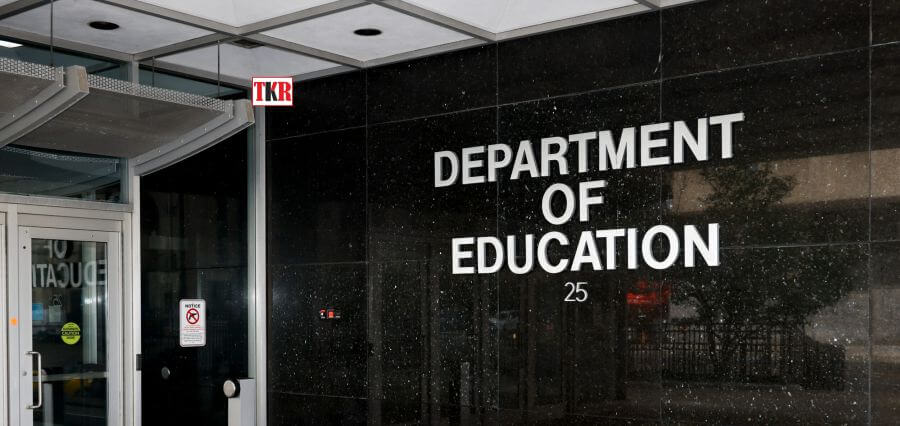
State Board of Education Poised for a Financial Solution
More articles.

Navigating the Path to Medical School: A Comprehensive Guide to Admissions

Data Management – 6 Ways it Supports the Education Sector!
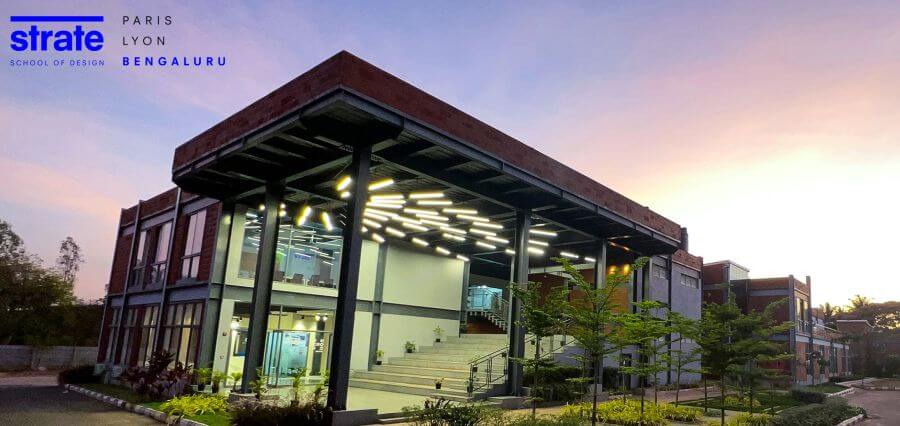
Strate School of Design Opens Admissions for 2024 Design Programs: check details here
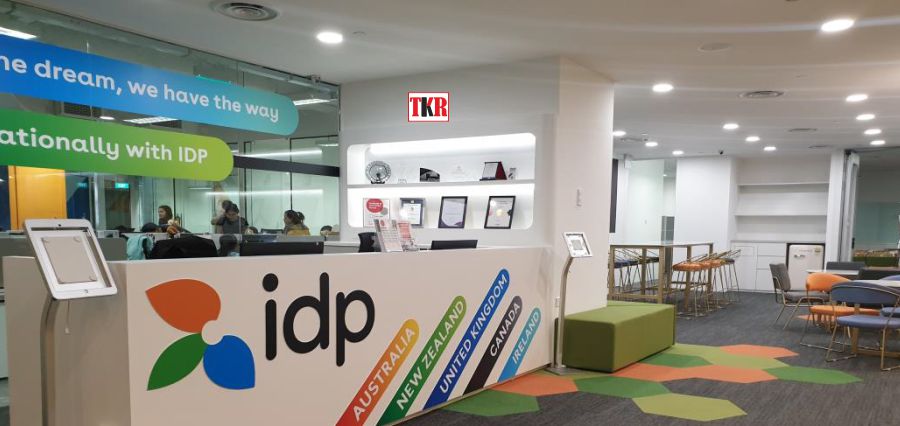
IDP will Initiate Cost Reduction Steps in reaction to “restrictive policies”
Our motive behind developing The Knowledge Review is to provide data relevant to every individual connected to education, i.e., Student, Parents, Professors, and Institute Management.
Quick Links
© copyright 2024, the knowledge review | all rights reserved..
Importance of Educational Tours For School Students
27 january 2023 the manthan school.
Last updated on June 30th, 2023 at 12:38 pm
Educational tours are a crucial component of the academic program because they give students the chance to learn outside of the classroom and get useful practical experience. There is a proverb that goes, “I hear and I forget, I see and I remember, I do and I comprehend,” and it refers to the idea that seeing something being done in a certain location helps people remember it better.
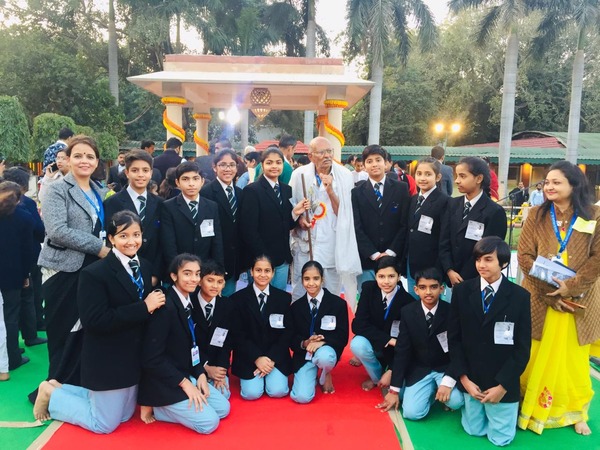
Reasons To Opt For Educational Tours In Schoo
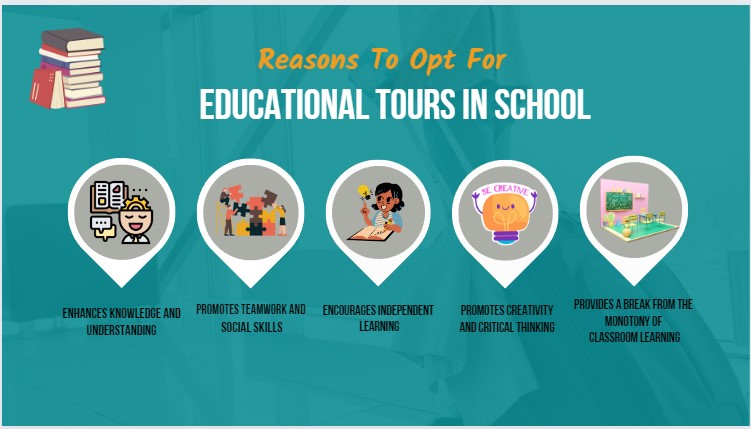
Here are a few reasons why educational trips are important in schools :
Enhances knowledge and understanding
Educational trips provide students with a chance to learn about a particular place or subject in a more interactive and immersive way. For instance, visiting a historical site or a museum helps students better understand the history and culture of a place.
Promotes teamwork and social skills
Educational trips involve group activities and require students to work together, which helps them develop teamwork skills and social skills. This is crucial for younger pupils because it fosters their confidence and self-worth.
Encourages independent learning
Educational trips require students to be more self-directed and take ownership of their learning. This helps students develop problem-solving skills and become more independent learners.
Promotes creativity and critical thinking
Educational trips provide students with a chance to think creatively and critically about the things they see and experience. This helps students develop their critical thinking skills and become more innovative learners.
Provides a break from the monotony of classroom learning
Educational trips give students a break from the traditional classroom setting and allow them to learn in a more fun and interactive way . This helps to keep students engaged and motivated to learn.
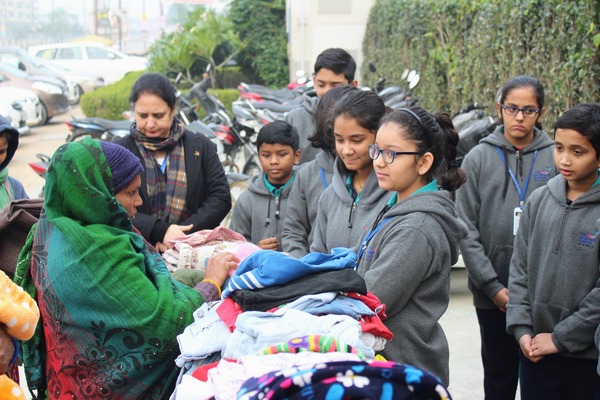
Generally, educational tours in school are a great way for students to learn about different subjects, cultures, and historical events in a hands-on and interactive way. These tours can take place locally, nationally, or internationally, depending on the goals and interests of the group. Some examples of educational tours for school kids might include:
Science and nature tours: These tours take students to museums, zoos, aquariums, or natural habitats to learn about various scientific concepts and the natural world.
Historical tours: These tours take students to historical landmarks and sites, such as battlefields, museums, or cultural centers, to learn about significant events in history and different cultures.
Art and cultural tours: These tours take students to art museums, galleries, or cultural centers to learn about different artistic styles and cultural traditions.
Community service tours: These tours take students to locations where they participate in community service projects, such as helping to rebuild homes or assisting with environmental conservation efforts.
Importance Of Educational Tour
Let’s know why educational tours important for school students:
Exposure to new cultures and environments
Field tours are incredibly enriching and educational for students. Educational tours provide the opportunity for students to learn about different customs, traditions, and ways of life in other countries or regions. These tours are organised to focus on specific subjects, such as history, language, art, or science, or they can be more general in nature, allowing students to experience a wide range of cultural and educational activities.
By participating in an educational tour, students gain first-hand exposure to different cultures, historical sites, and natural landscapes. It helps to broaden their understanding of the world and encourage them to think more critically about the world around them. Educational tours can also provide students with the opportunity to develop important skills such as independence, problem-solving, and teamwork, as they navigate unfamiliar environments and cultures.
Hands-on learning experiences
Educational tours that incorporate interactive learning can be a powerful tool for students to deepen their understanding of a subject or topic. By actively participating in the learning process, students are more likely to retain information and develop critical thinking skills. Additionally, interactive learning can be more engaging and enjoyable for students, making it a valuable addition to any educational tour.
Development of social skills
skills: Educational tours provide students with the opportunity to interact with their peers and adults in a new setting, helping to develop their social skills and confidence.
Improvement of communication skills
Educational tours require students to communicate and collaborate with their peers and adults, helping to improve their communication skills .
Development of problem-solving skills
Educational tours often involve challenges and unexpected situations that require students to use their problem-solving skills to find solutions.
Enhancement of critical thinking skills
Educational tours encourage students to think critically about the information and experiences they are exposed to, helping to enhance their critical thinking skills.
Increased motivation and engagement
Educational tours provide students with a sense of excitement and adventure, which can lead to increased motivation and engagement in learning.
Development of leadership skills
Educational tours provide students with the opportunity to take on leadership roles and responsibilities, helping to develop their leadership skills .
Building of lifelong memories
In addition to the academic benefits, educational tours also provide an opportunity for students to build lifelong memories. These trips allow students to make new friends, bond with their classmates, and create memories that will stay with them for a lifetime. Hence, educational tours are a valuable educational tool that helps students learn about the world and build lasting memories.
Enhance Academic Performance
During educational tours, students are exposed to a variety of teaching philosophies and discover new perspectives on their fields of study. Students return to the classroom with a deeper connection and greater motivation for their studies when they are able to see, touch, and smell the very things they have learned about in books.
Thus, educational tours are a valuable addition to a student’s education and help them learn and grow in a variety of ways.
Things to consider when planning for an educational tour
Budget: It is important to consider the cost of the educational tour and ensure that it is within the school’s budget.
Safety: The safety of the students should be a top priority. Consider the safety measures in place at the destination, such as emergency procedures, transportation, and accommodations.
Educational value: The tour should offer opportunities for students to learn and engage with new experiences. Consider the curriculum and how the tour aligns with it.
Student demographics: Take into consideration the needs and abilities of the students, including physical limitations, language barriers, and special needs.
Teacher involvement: Consider the role of teachers on the tour and how they can contribute to the educational experience.
Cultural sensitivity: Be mindful of cultural differences and respect local customs and traditions. Sustainability: Consider the environmental impact of the tour and choose destinations that prioritize sustainable practices.
Student and parent involvement: Involve students and parents in the planning process and encourage their input and feedback.
L ength of the tour: Consider the length of the tour and whether it is feasible for the students and teachers.
Pre-tour preparation: Plan activities and materials for before and after the tour to enhance the the learning experience and provide context for the destination.
We at The Manthan School , Greater Noida West, ensure that our students can reap the benefits of educational tours while following all the safety and other factors. For more information, visit our website: www.themanthanschool.co.in/ or feel free to write to us at [email protected] or [email protected].
Related Posts:
- Importance of Educational Tours
- A Parent’s Guide to Choosing the Right School in Greater Noida West
- The Importance of Experiential Learning
- 7 Reasons to Choose CBSE School Education for Your Child
- 3 Learning Hacks That Will Make Your Kids' Education Easy
- Taking learning to a global level
Last Updated on 30 June 2023 by The Manthan School

IMAGES
VIDEO
COMMENTS
Educational Travel is a carefully planned combination of tours, site visits and hands-on learning opportunities, built around clear learning objectives. An educational tour is more than a vacation. It's a tool for learning and success with fun and excitement built in. By walking in the footsteps of emperors, seeing the art that inspired a ...
ACIS offers 200+ customizable itineraries to destinations around the world. Let's work together and change students' lives. Browse Tours. Mon - Fri • 10 am - 6 pm EST to plan a trip. Travelers, we're available for you on Live Chat. A baseline understanding of educational travel is important. Learn more about what to expect on an ...
The importance of taking the students out of the classroom to absorb, interact and be immersed in history and educational tours have several learning benefits for students to obtain practical information within the brain. Educational Trips have many advantages in a student's life like new learning, entertainment, social interaction, experiences ...
Educational trips should always have a major educational element, but the impact of Educational trips can extend much further. The importance of Educational trips includes giving students the chance to build closer bonds with their classmates, experience new environments and enjoy a day away from the classroom. When students and teachers are ...
Here are several key reasons why educational tours are important: 1. Experiential Learning: Educational tours provide students with opportunities to learn through firsthand experiences, allowing ...
Defining Educational Tourism. Educational tourism, also known as edu-tourism or educational travel, is a form of tourism whose primary purpose is gaining knowledge and engaging in cultural exchanges. It involves travelling to a different country or region to learn about various subjects such as history, languages, art, and environmental issues.
Personal Development: Educational tours encourage personal growth by promoting independence, adaptability, problem-solving skills, and confidence. Students learn to navigate unfamiliar ...
Educational tourism is on the rise due to the huge proven benefits to students who take part in it. This article will explain the 8 key types of education in tourism. Educational tourism isn't a new concept. In fact, educational tours were popular amongst young British aristocrats in the 17th to 19th centuries.
Educational travel is a successful combination of tours, site visits, and hands-on learning opportunities that meet clear and concise learning objectives. Educational travel allows students to further their learning experience by actually seeing and/or experiencing what they have learned about in the classroom, in real life.
There are a series of steps between browsing itineraries and finding yourself in a new country with students, and ACIS is there for every part of the process. For curious minds, we have put together an all new guide on how to plan an educational tour. Whether you're new to the concept of educational travel or looking for a fresh start, this ...
Educational tourism is a travel style defined by a desire to know more about other cultures - their history, languages, architecture, cuisine, and beyond. At Far Horizons, we craft adventure-filled trips to extraordinary destinations led by Leading Academics. This means guests enjoy all the excitement and luxury one could want from a vacation ...
Since the origins of tourism and the grand tour (Ritchie et al, 2003) the educational benefit of travel has long been recognised.There are now an abundance of 'study abroad' options available to those inclined and the informal educational attributes of travel, for example whilst undertaking volunteer tourism placements, gap years or backpacking trips, are undisputed.
This can be one of the most beneficial aspects of an educational tour. The importance of a school trip to study other cultures cannot be overstated. Students gain a much deeper understanding of the world along with an appreciation of diversity, world history, language and customs. Students also develop self-confidence learning to acclimate to a ...
Educational tourism is about learning new things, acquiring new knowledge about culture or history of other destinations. Its main focus is on studying new things, learning about other cultures, study tours, or to apply the learned skills. This is one of the most famous type of tourism activity for past few years, for example people travel to ...
Step 6.Find the right tour company to guide you and help you manage the details. With so many companies out there, it's important to invest time into researching the one that is the best fit for the objectives of your educational project. Beyond programmatic activities offered, also look at the firm's philosophy and testimonials.
Essentially, an educational tour is an enhanced and upgraded version of the traditional field trip. While the difference between a field trip and an educational tour may seem unimportant, there are many ways that a professional tour organizer such as Junior Tours can enhance the learning and overall experience of any trip, making it well worth ...
Traveling with peers on educational tours helps build social skills and fosters a sense of community. Students learn to cooperate, communicate, and support one another in new settings. These experiences can also boost self-confidence as students navigate unfamiliar environments and situations, enhancing their emotional resilience and adaptability.
Students can absorb large amounts of knowledge at their desks, but taking lessons outside the classroom provides an even more powerful gateway to learning. Students can lean on the memorable experiences had on educational tours to navigate scenarios in the future. This includes use of time management, social skills, and transportation.
Not-for-profit creator of experiential travel opportunities all over the world for age 50+ Group or solo packages include lodging, meals, & expert-guided educational tours. Educational Adventures. 2023 & 2024 Enrolling Now. Non-Profit Organization.
Joining the EF family means you'll have the support of our community of educators, tour architects, operations wizards, and ever-curious explorers. We've experienced the transformative power of travel firsthand—and we can't wait to explore the opportunities that are out there for you and your students. Meet your people.
The answer is, no. Educational tours have been around for a long time, and form an important part of the education system. Purpose of Education Tour. The primary purpose of an educational tour or a field tour is to educate students, and provide them with a chance to learn from a new set of experiences in an informal setting. In addition to this ...
The educational tour/field trip helps in developing overall personality of students. While on an educational tour to a new property or place is great fun, its main objective is learning. It exposes the students to the outside world, be it local & global issues. It improves them with a new prospective and helps in developing overall personality.
Here are a few reasons why educational trips are important in schools:. Enhances knowledge and understanding. Educational trips provide students with a chance to learn about a particular place or subject in a more interactive and immersive way. For instance, visiting a historical site or a museum helps students better understand the history and culture of a place.